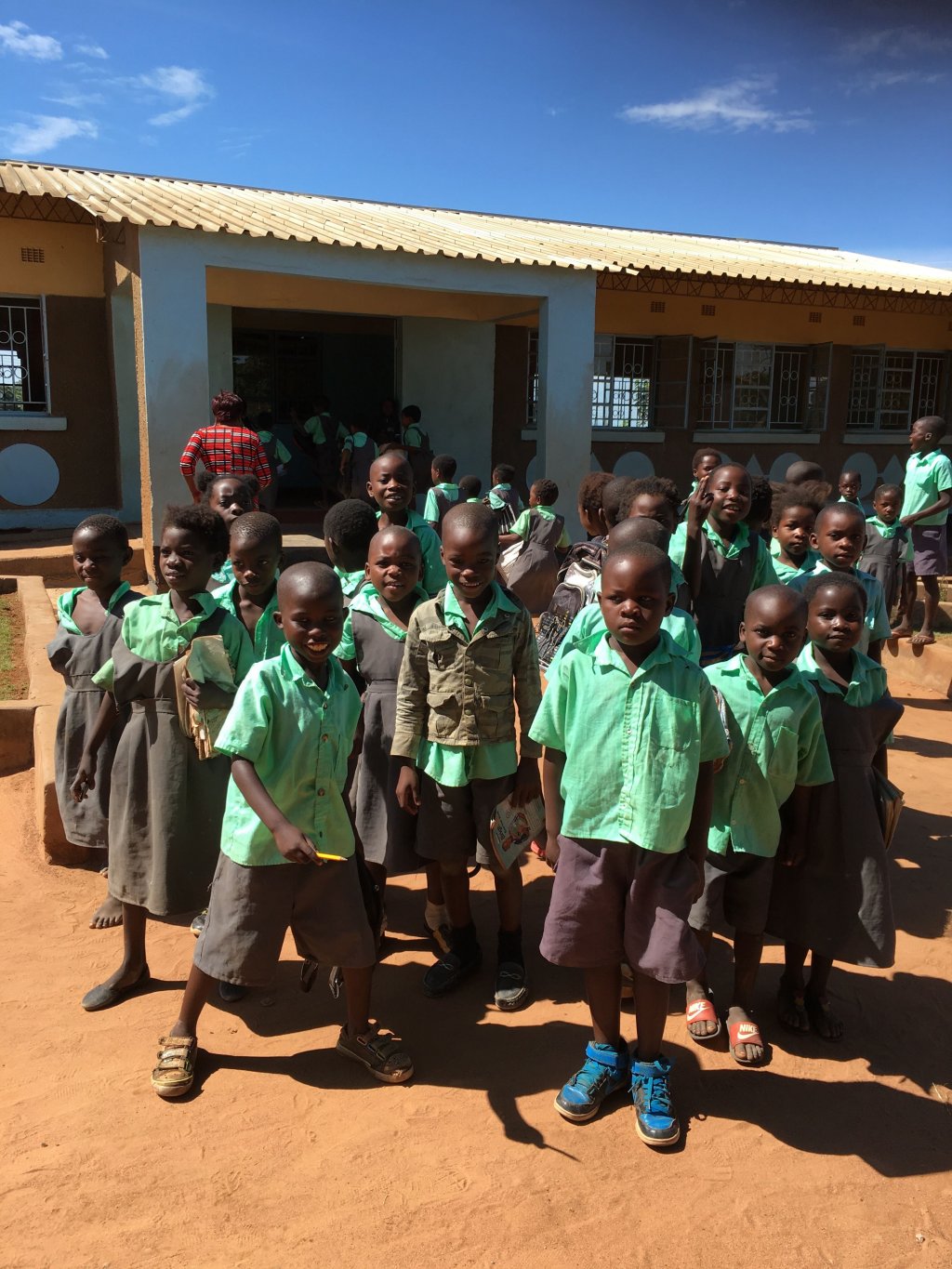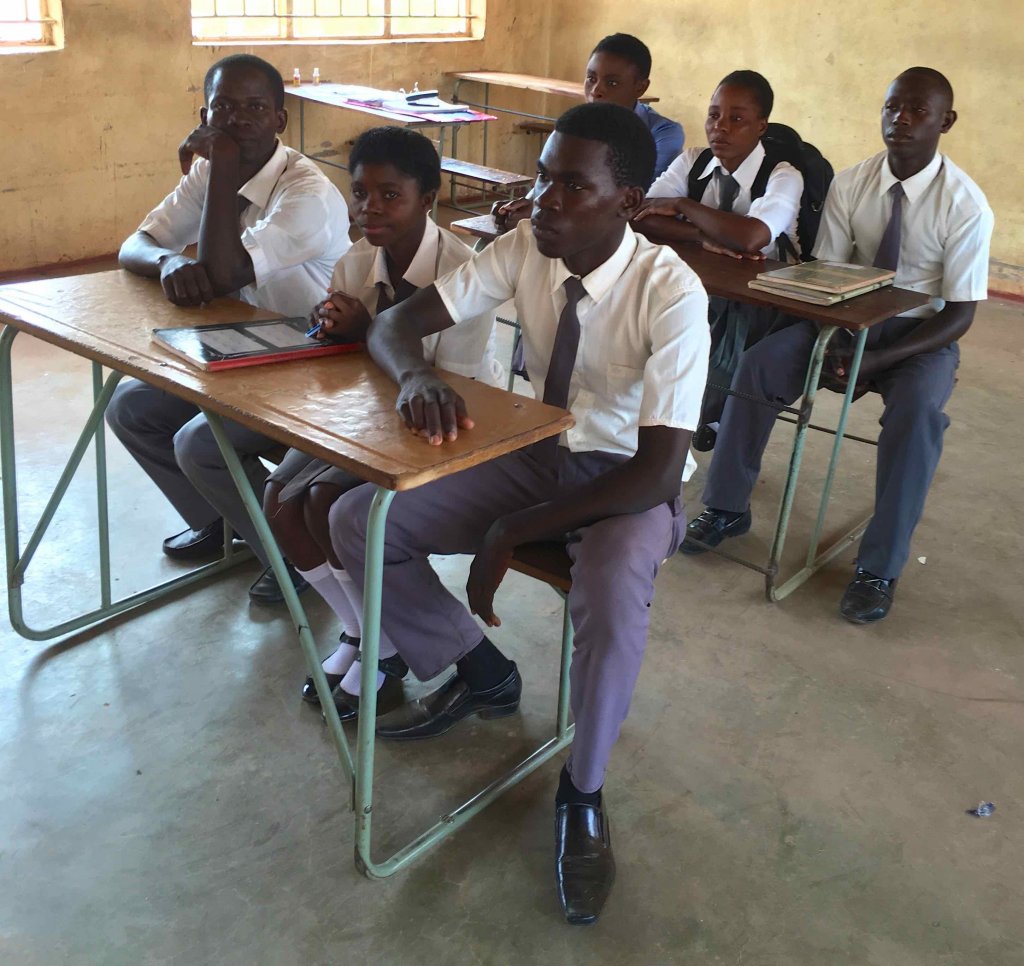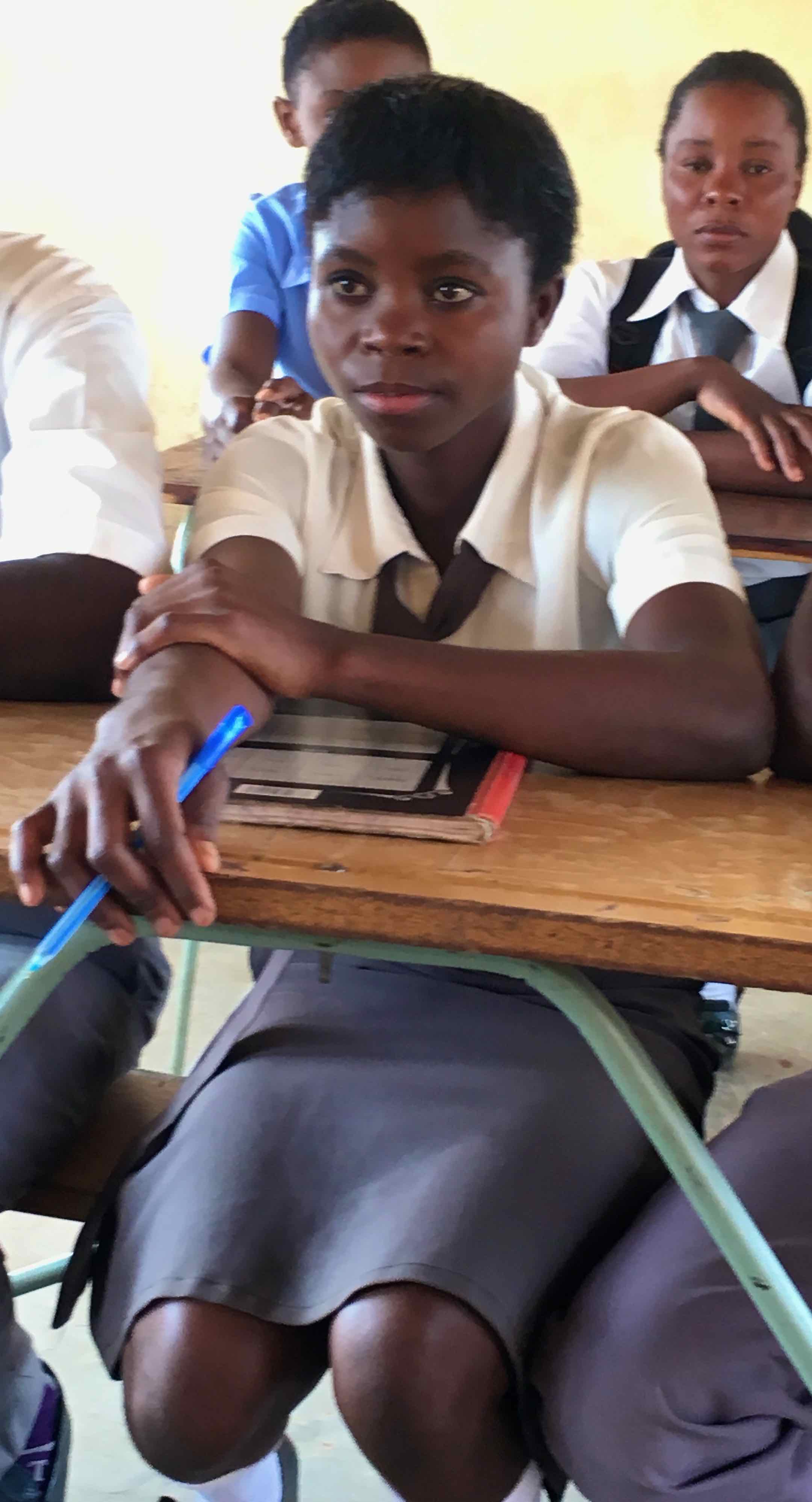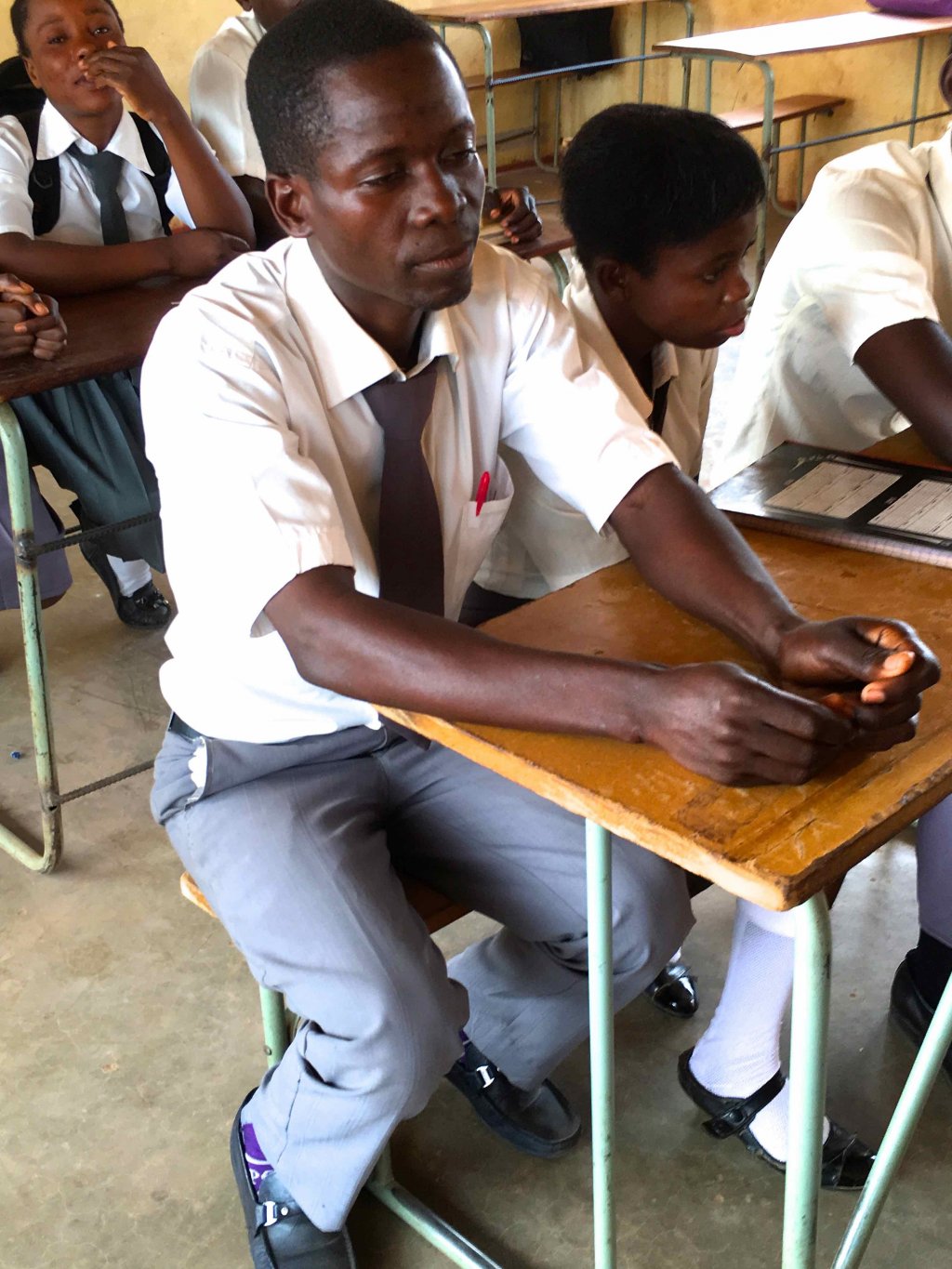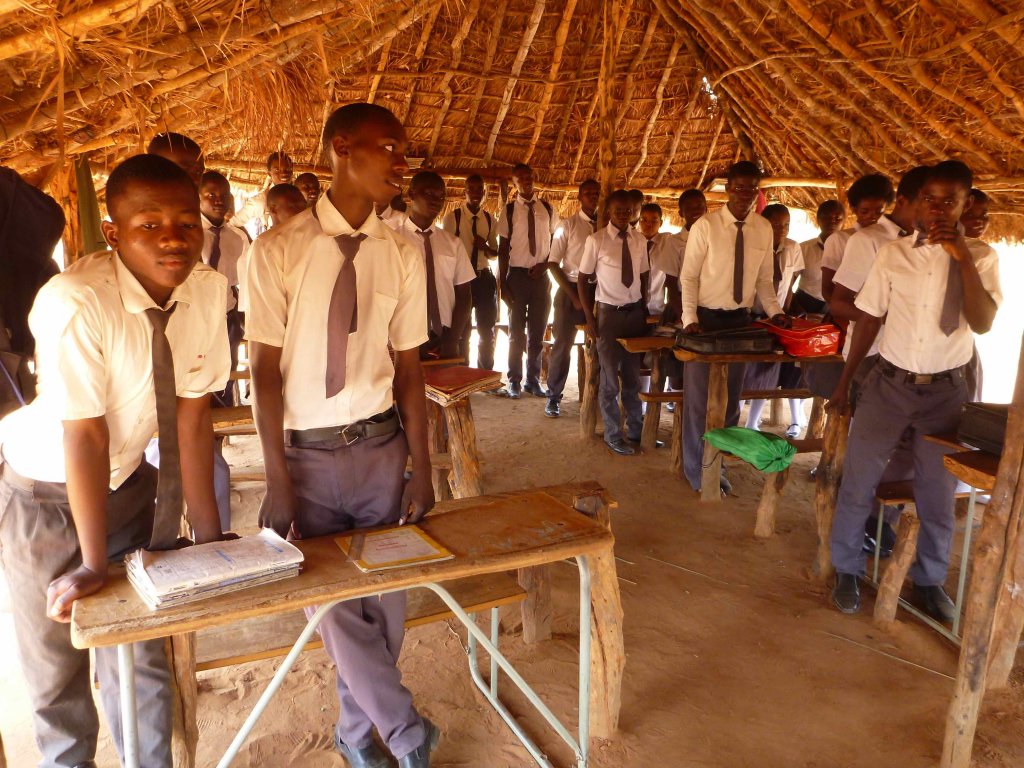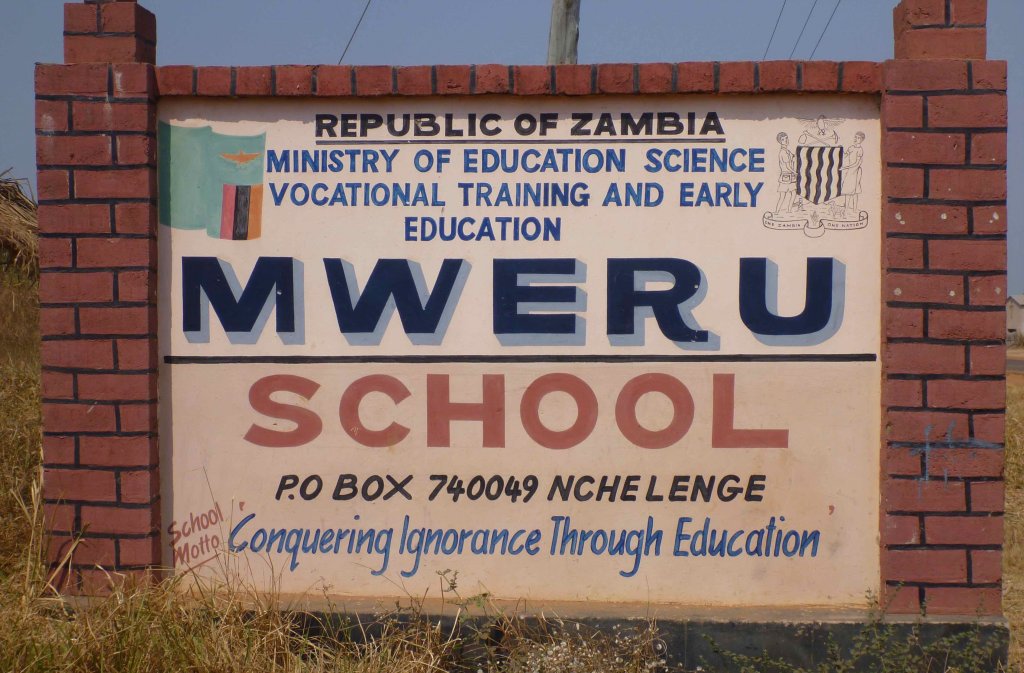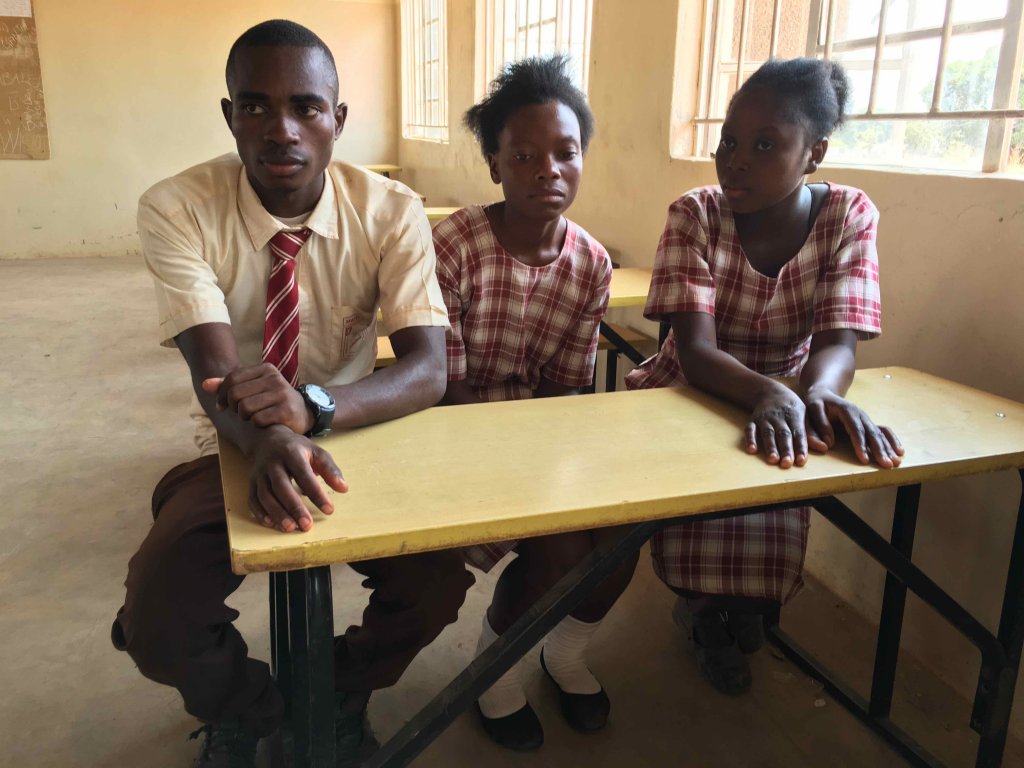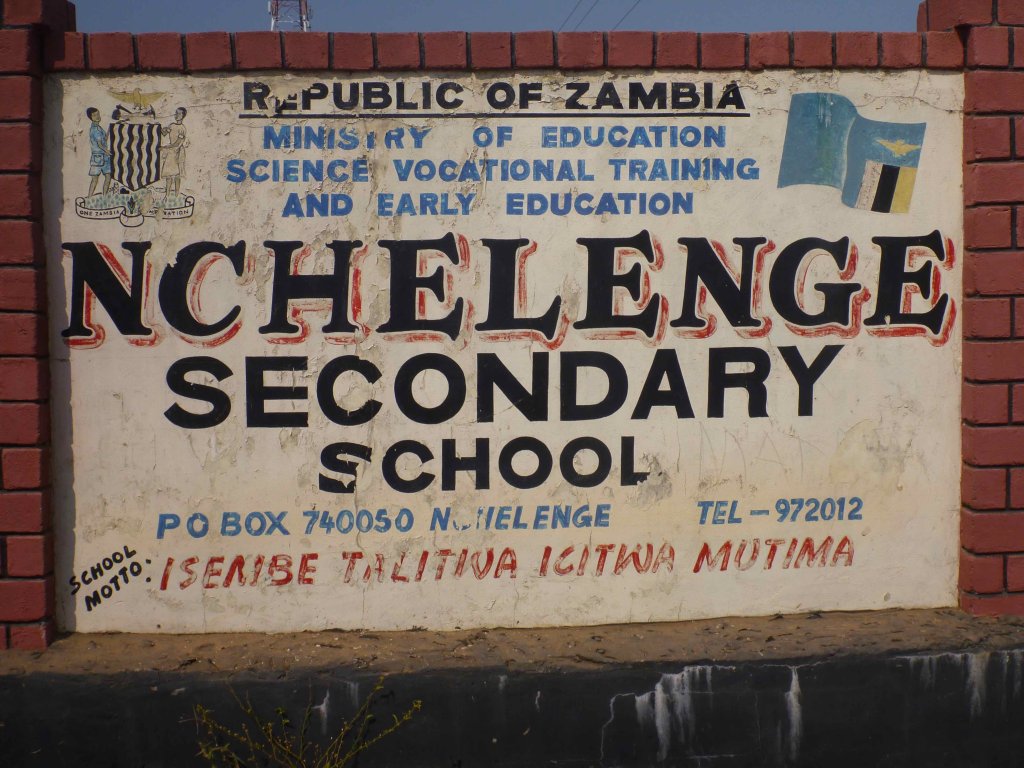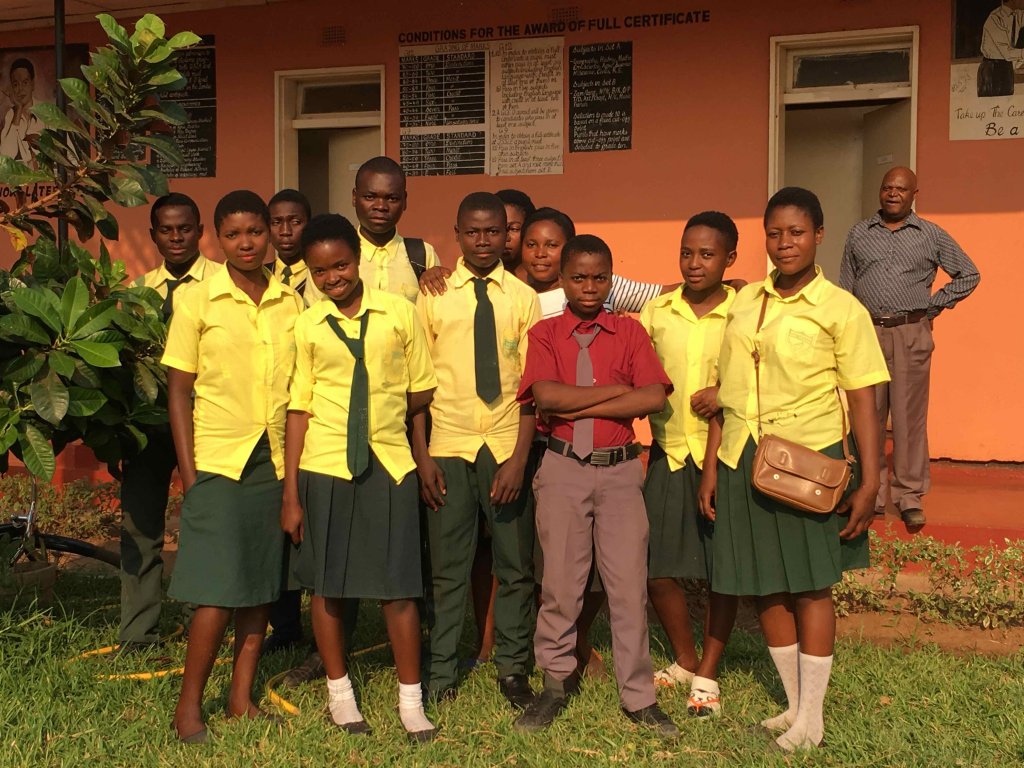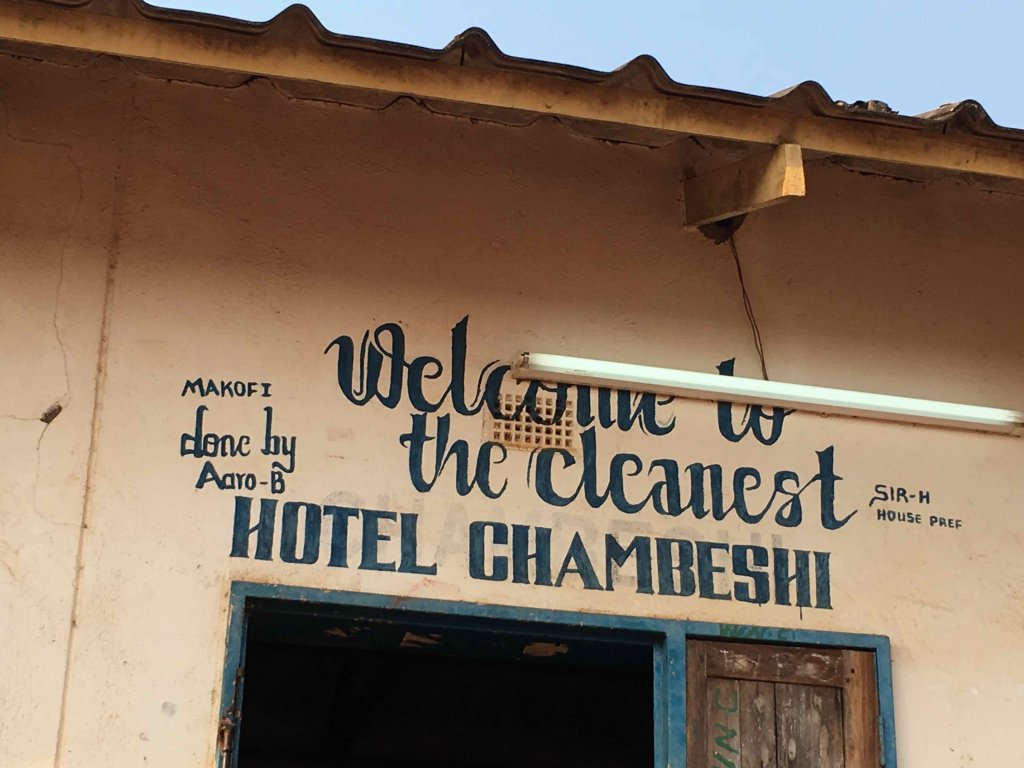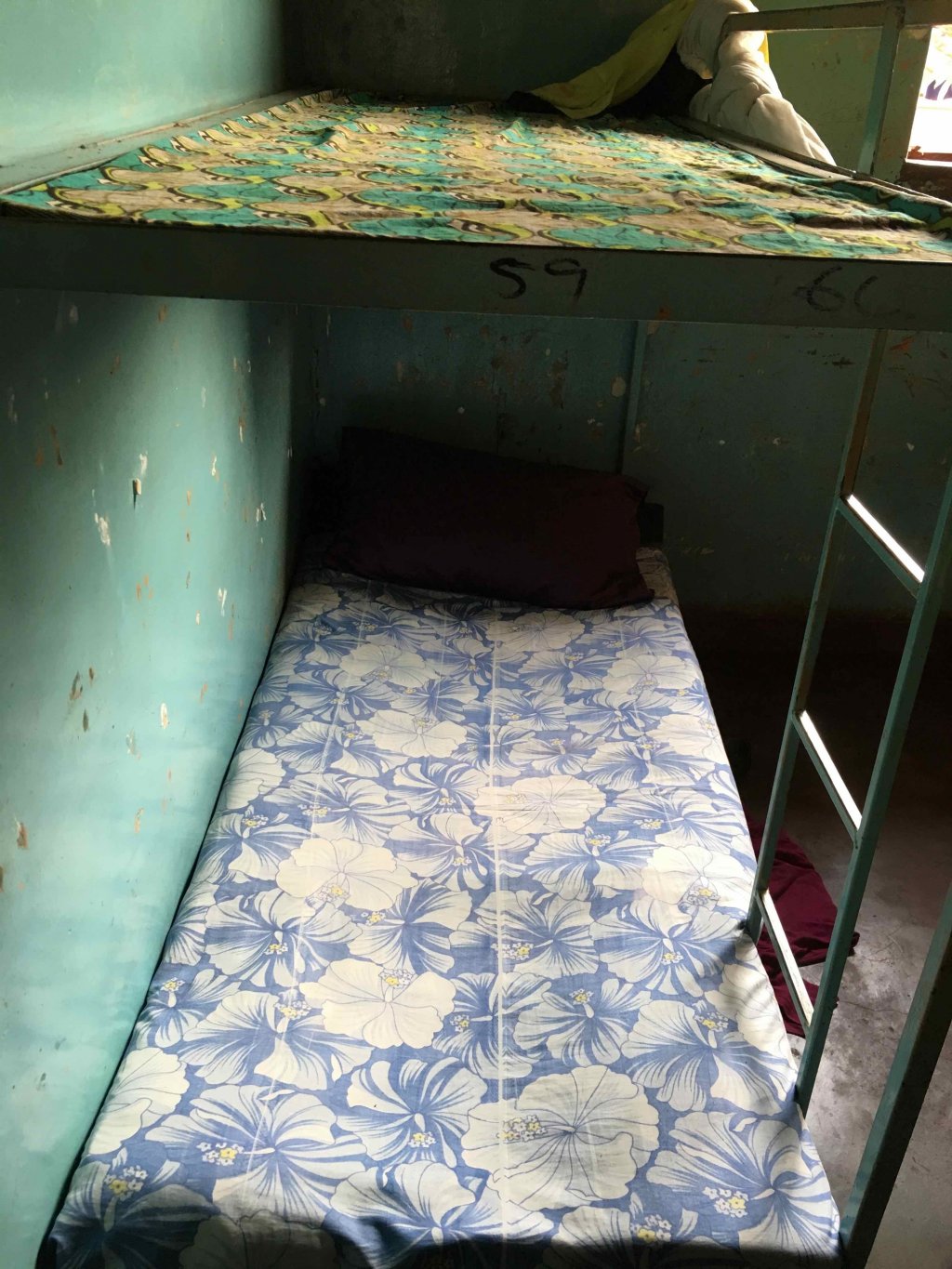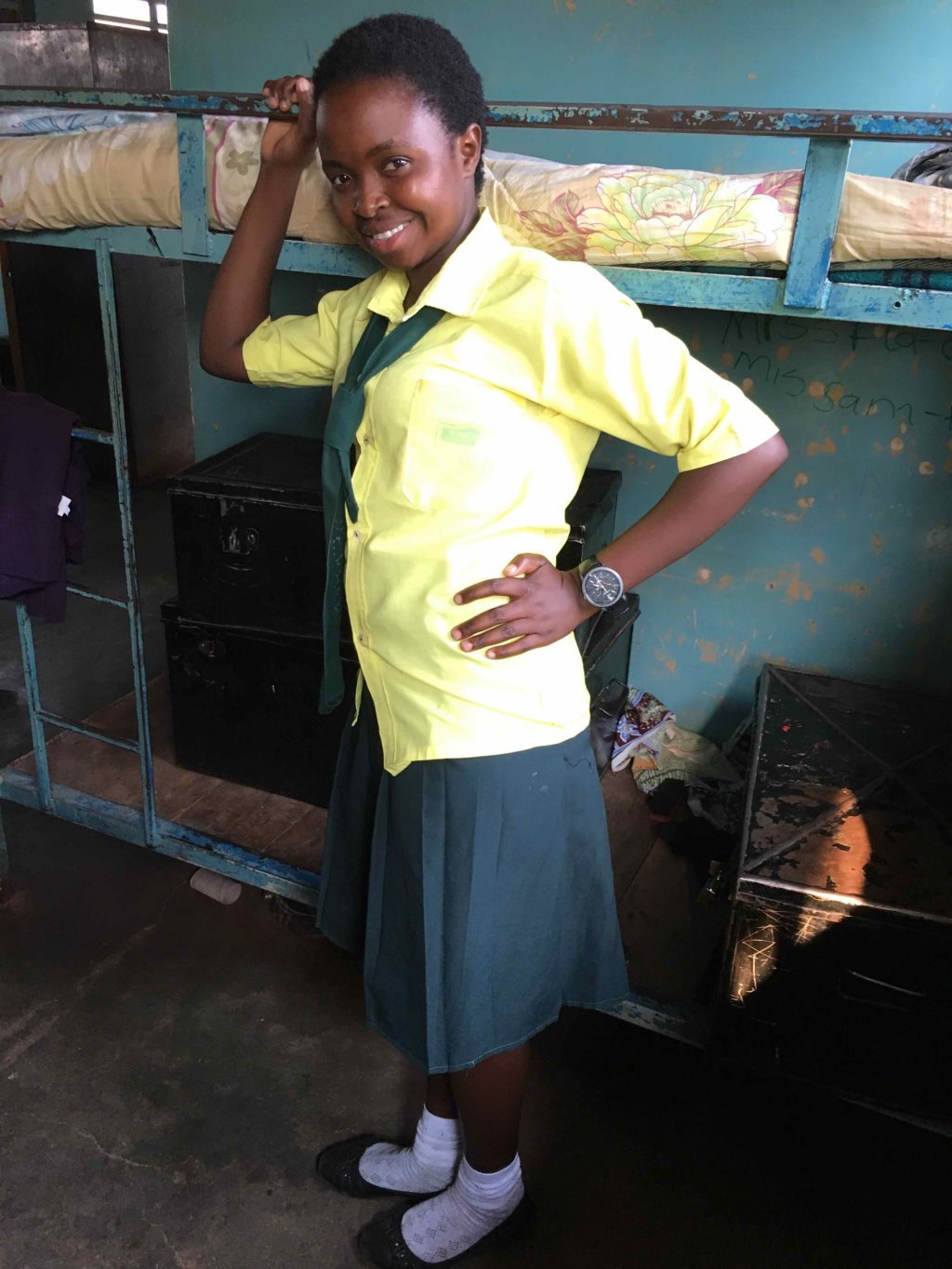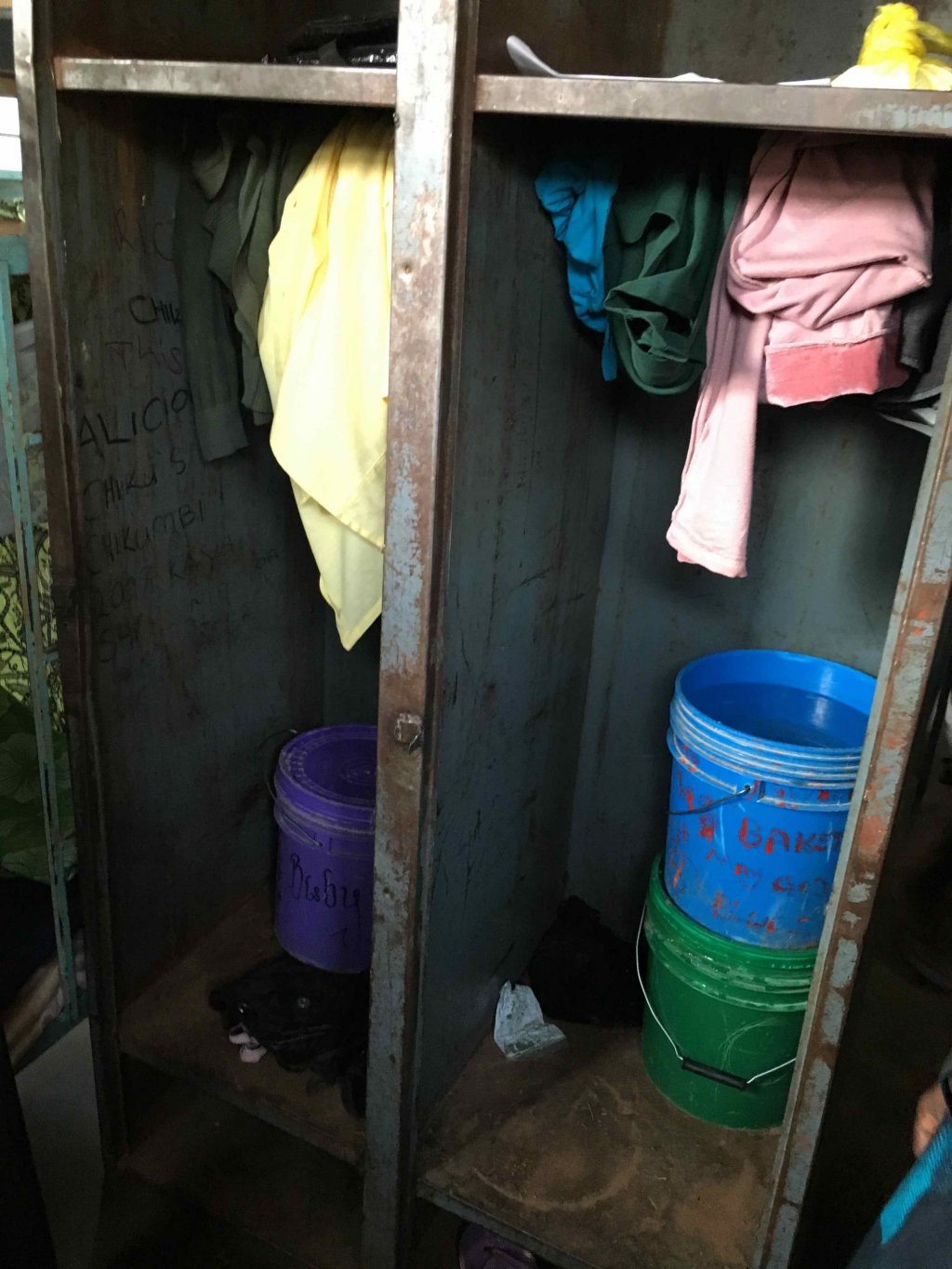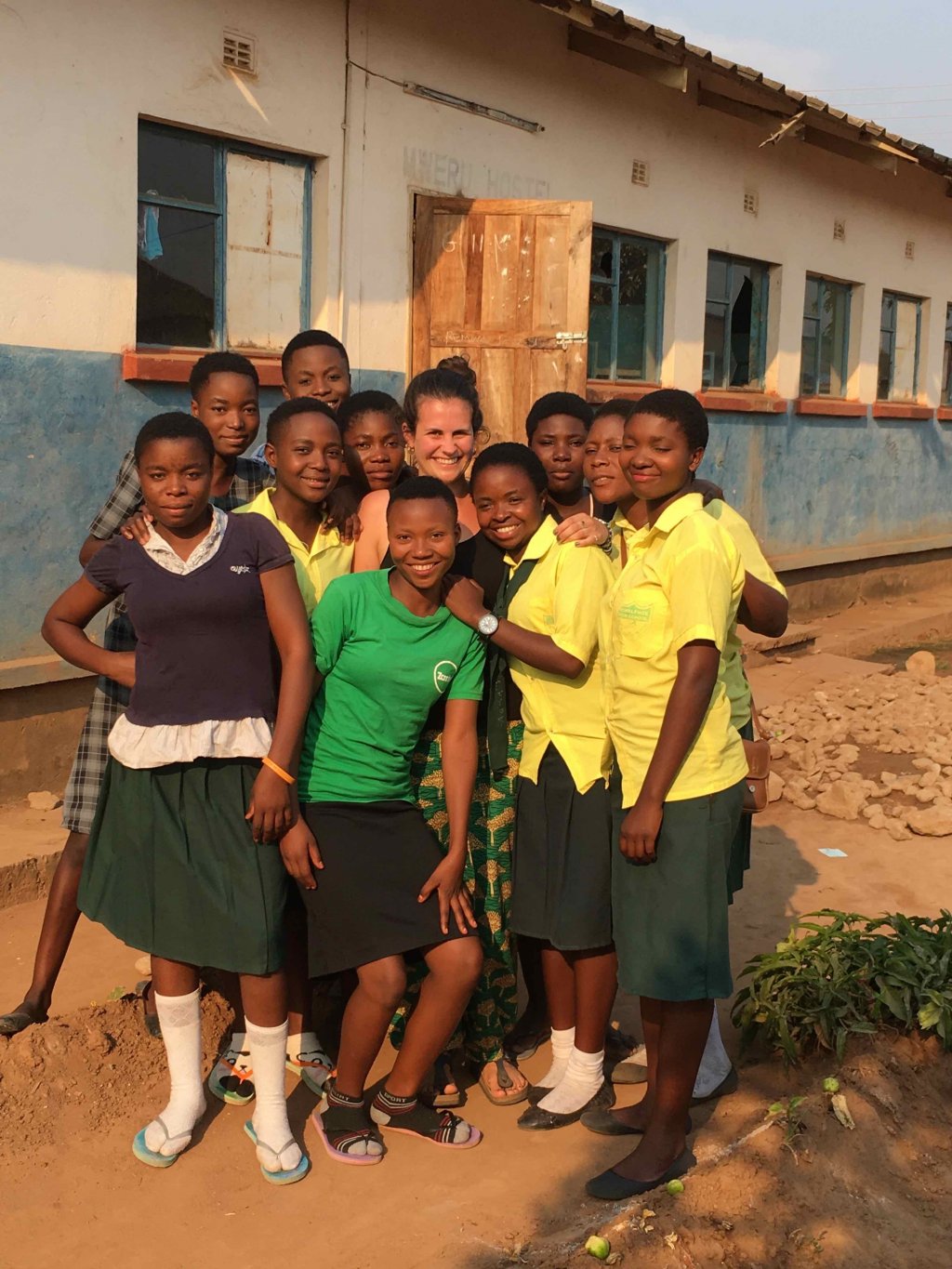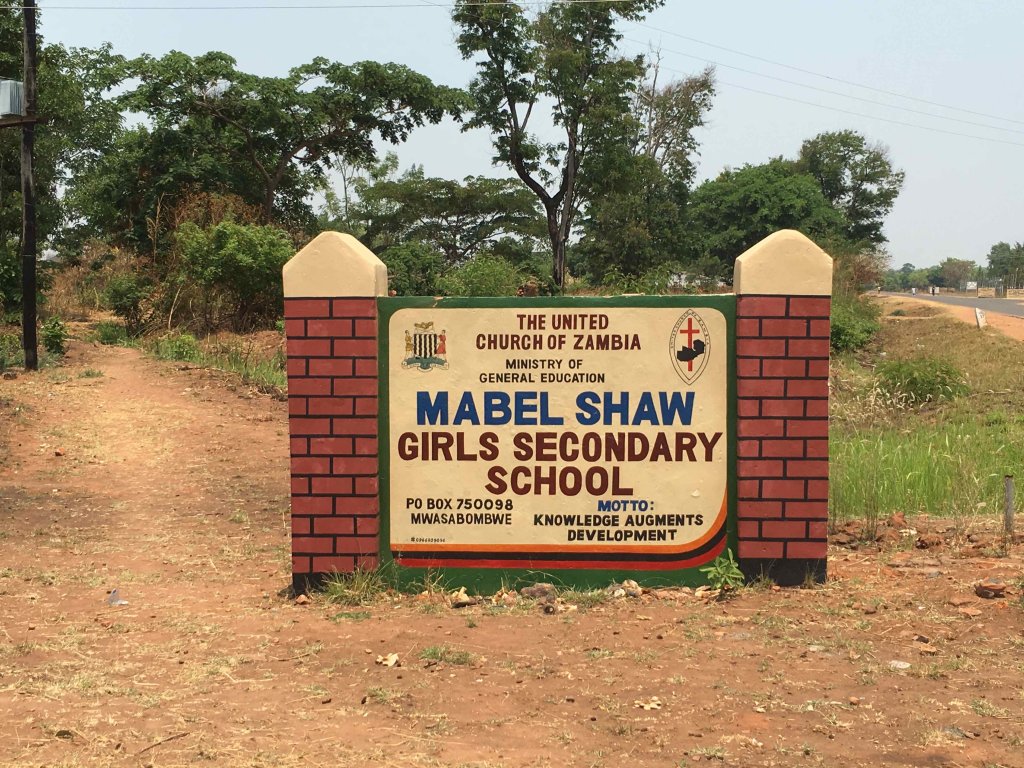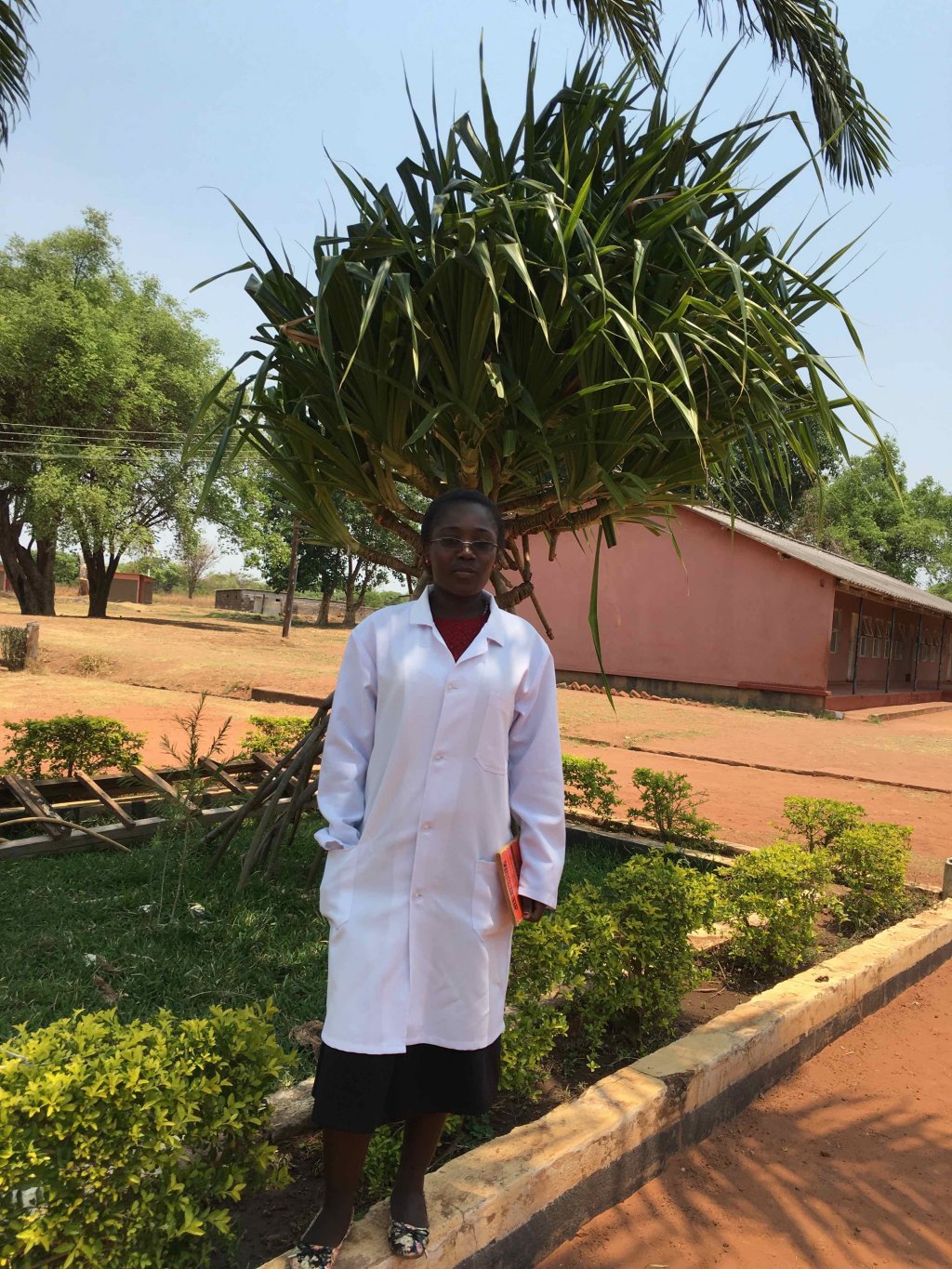Annual Report 2023
With the Project for Orphans and Vulnerable Children (OVC), we enable young, orphaned and vulnerable children to attend school, study at a college or do an apprenticeship at a Vocational Training Centre by paying the necessary fees and paving the way for a self-determined future.
For the OVC Project, we work closely with the local people responsible, Mr Jacob Chanda and St Paul's Hospital (St Paul's OVC Support). Jacob Chanda coordinates the project on site. All applications for support must be submitted via him. He assesses very carefully whether a child can be included in the project based on their circumstances and family situation. The applications are also checked by the administrative management of St Paul's Hospital. Both guarantee the effective use of the donations, which are used very directly and for a specific purpose.
In 2023, we were able to support 80 pupils in secondary boarding schools from 8th to 12th grade (approx. CHF 210 per pupil per year), 10 students at colleges or universities (CHF 550 to 1200 per student per year) and 10 apprentices at Vocational Training Centres (CHF 600 to 700 per apprentice per year).
The annual budget amounts to CHF 40’000.
In 2023, we were delighted and proud to send our donors from the OVC Project in Kashikishi a few success stories that are only possible thanks to their generous donations.
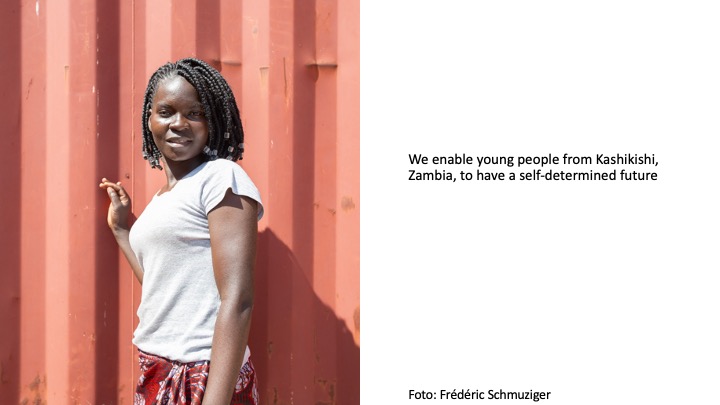
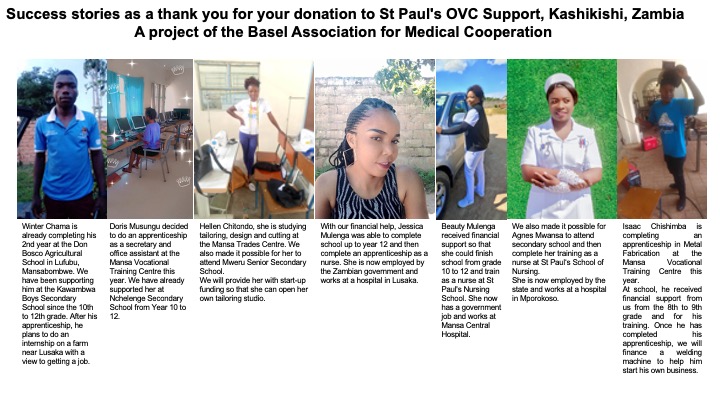
Annual Report November 2022
As per every year, I would like to present a report on the progress of the project, to our loyal donors of the Orphan School Project of the Basel Support Association for Medical Collaboration (BFV) in Kashikishi, Zambia. I returned at the beginning of November from a trip to northern Zambia, and therefore I now have the opportunity to present an up-to-date report on the success of the project.
With the Orphan School Project we enable children without parents or vulnerable young people to attend school, to study at a College, or complete an apprenticeship at a Vocational Training Centre, by paying the necessary fees.
I work together closely with Jacob Chanda, who coordinates and manages the project on the ground in Zambia, on a voluntary basis. He carefully selects which, of the young people who apply for support, are accepted for the project. He explains the exact family and financial circumstances to us, based on the admission criteria that we established 3 years ago, in the form of an information sheet. He is also responsible for keeping to the fixed budget, agreed to in advance by us.
The trip that the team of 3 members of the BFV undertook in October 2022, was short and intensive. We had only 2 weeks available for the project. Travelling in Zambia requires a lot of time and patience because the roads are in a very bad condition. At this time of the year the daytime temperature is on average 35 C. It took us 2 days to travel from the capital Lusaka to Kashikishi.
In Lusaka we visited Peter Ntondo at the modern Silverest Campus of the University of Lusaka. This private University was opened in 2007. Peter is in the third year of his medical studies, and is the only student supported through private sponsoring by us, in a university education. His family’s income is from catching fish, and he lived until recently on an island in the Lake Mweru. Thanks to a small inheritance left to him by an uncle, it was possible for him to attend a school. He completed 12th grade with very high marks. Next year he will begin the clinical training. Peter gave us a tour through the University Campus and described to us his lectures and practicals. He is a very motivated and ambitious student. He showed us on his laptop, which he had received from us on our last visit, his medical practical reports, and the YouTube videos with which he teaches himself further.
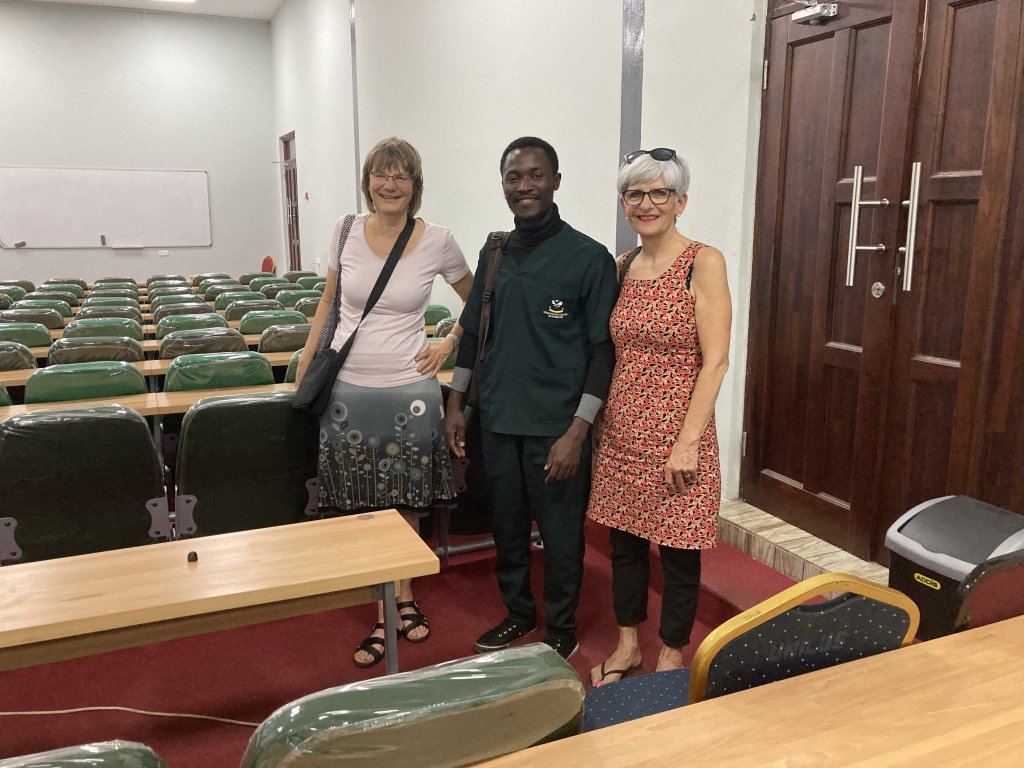
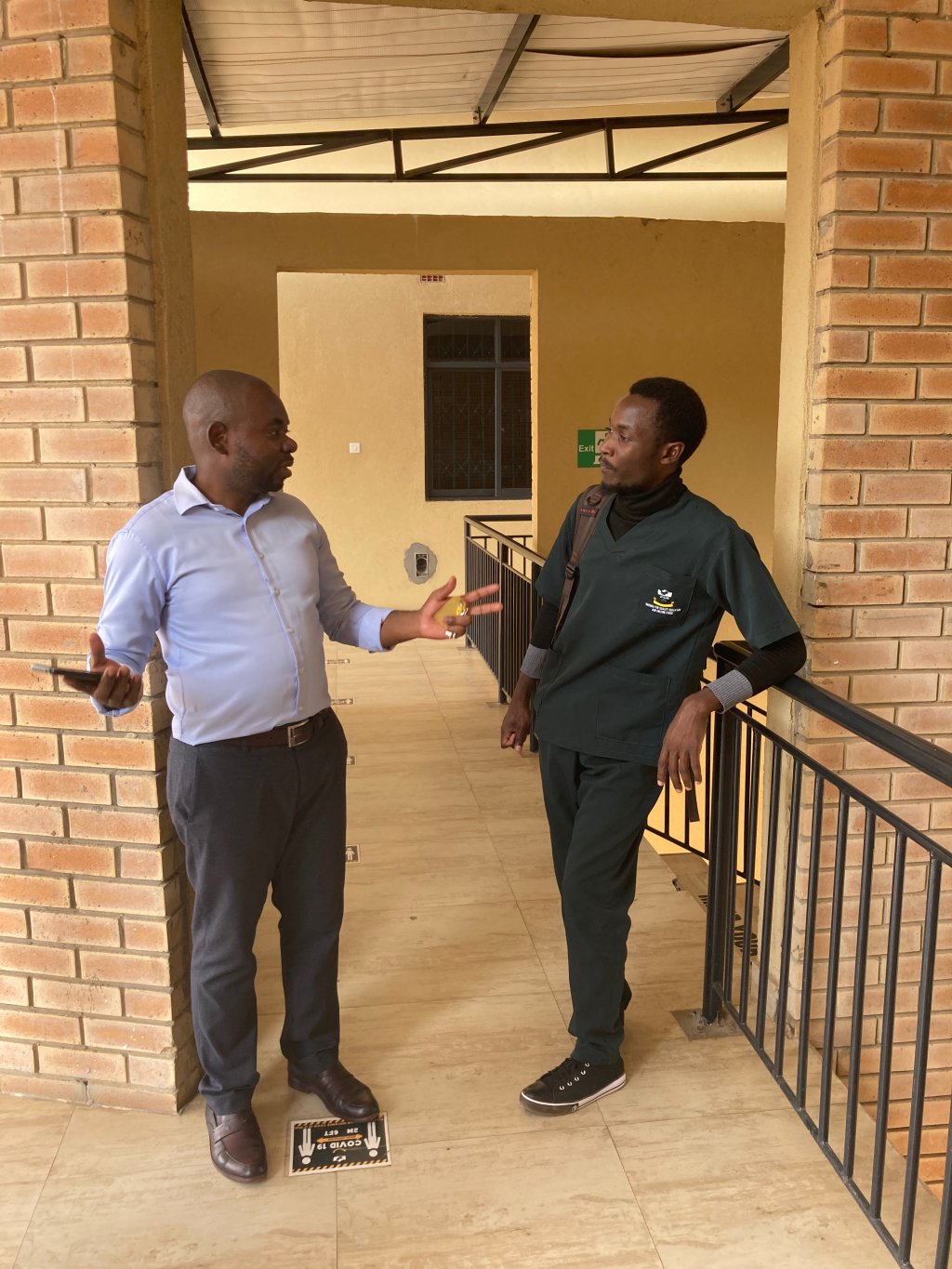
I am very pleased that I am able, near the end of the year, to report news from the Orphan School Project in Kashikishi (OVC Project, Orphans and Vulnerable Children). We had to wait a long time until the Corona situation allowed us to visit our partners and friends in Kashikishi. Despite the situation still not being easy, we travelled to Zambia in November 2021.
Fortunately, with emails and WhatsApp, it was always possible to stay in contact. So we were regularly updated as to the current situation there. At the beginning of the year, the school semester start (Term 1) was postponed until February 1. 2021 (instead of January 4. 2021), because of the anticipated 2nd wave of Covid 19 infections. In 2021 we could, as in the previous year, support 100 secondary school girls and boys, spread over 25 schools in the Kashikishi area (day schools and boarding schools), in the district of Nchelenge, to enable them to attend school. 28 of these students were due to complete year 12, and therefore their schooling by the end of the year.
From Lusaka, we afterwards visited the Vocational Training Centre Chikupi, where Willmot Masumbuko will soon complete the 1 year course in agriculture. He hopes that he will secure a job on a farm, so that he can soon earn his own money. His aim is to eventually buy his own plot of land and manage an independent small business.
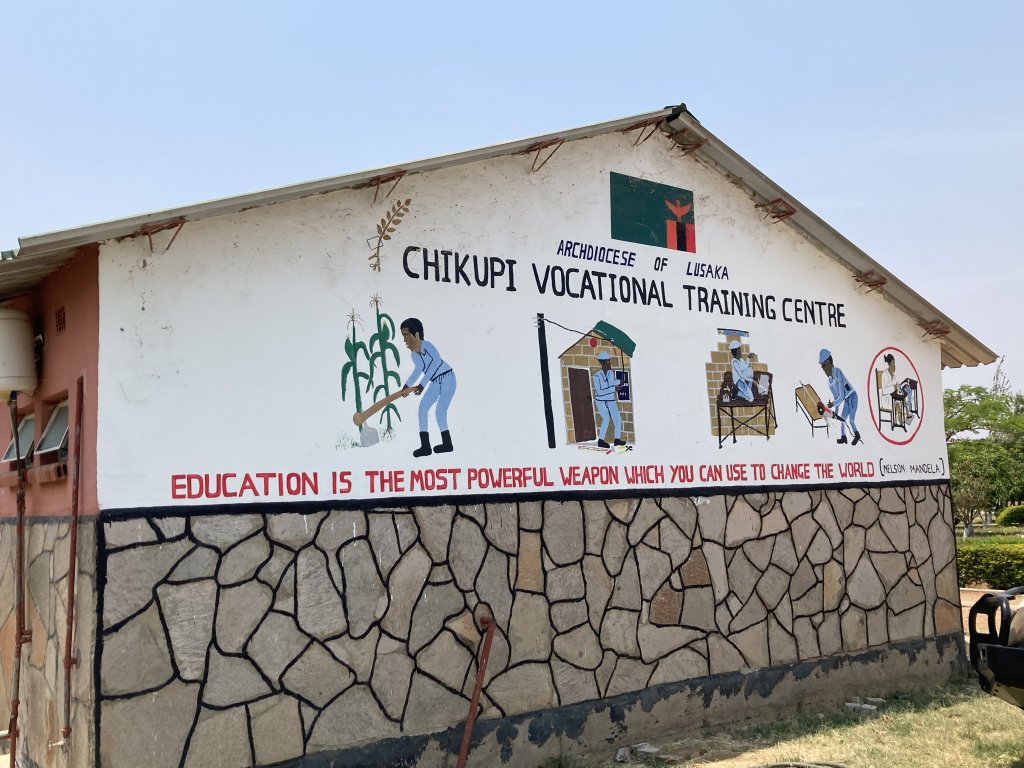
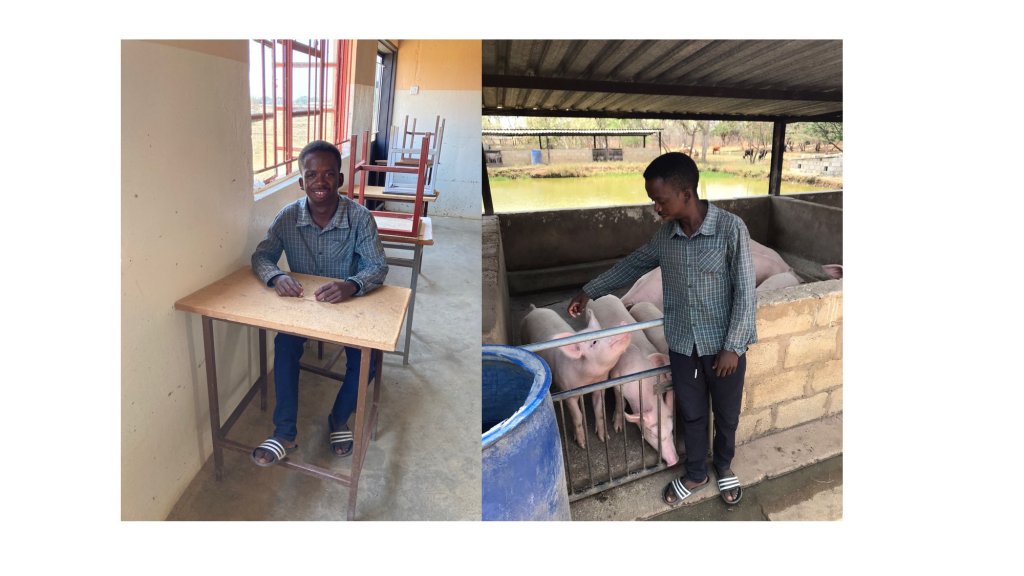
It is repeatedly said to us how important it is to learn about sustainable agriculture or a trade. Trained professionals are very important for the development and economy of the country. It confirms even more that our support for the teaching of a trade or craft at a Vocational Training Centre is very advantageous. The VTCs which are easily accessible for the interested young people of Kashikishi were evaluated by us last year, with Jacob Chanda. Despite different levels of schooling, individual skills can be encouraged and a chance given for an independent future life.
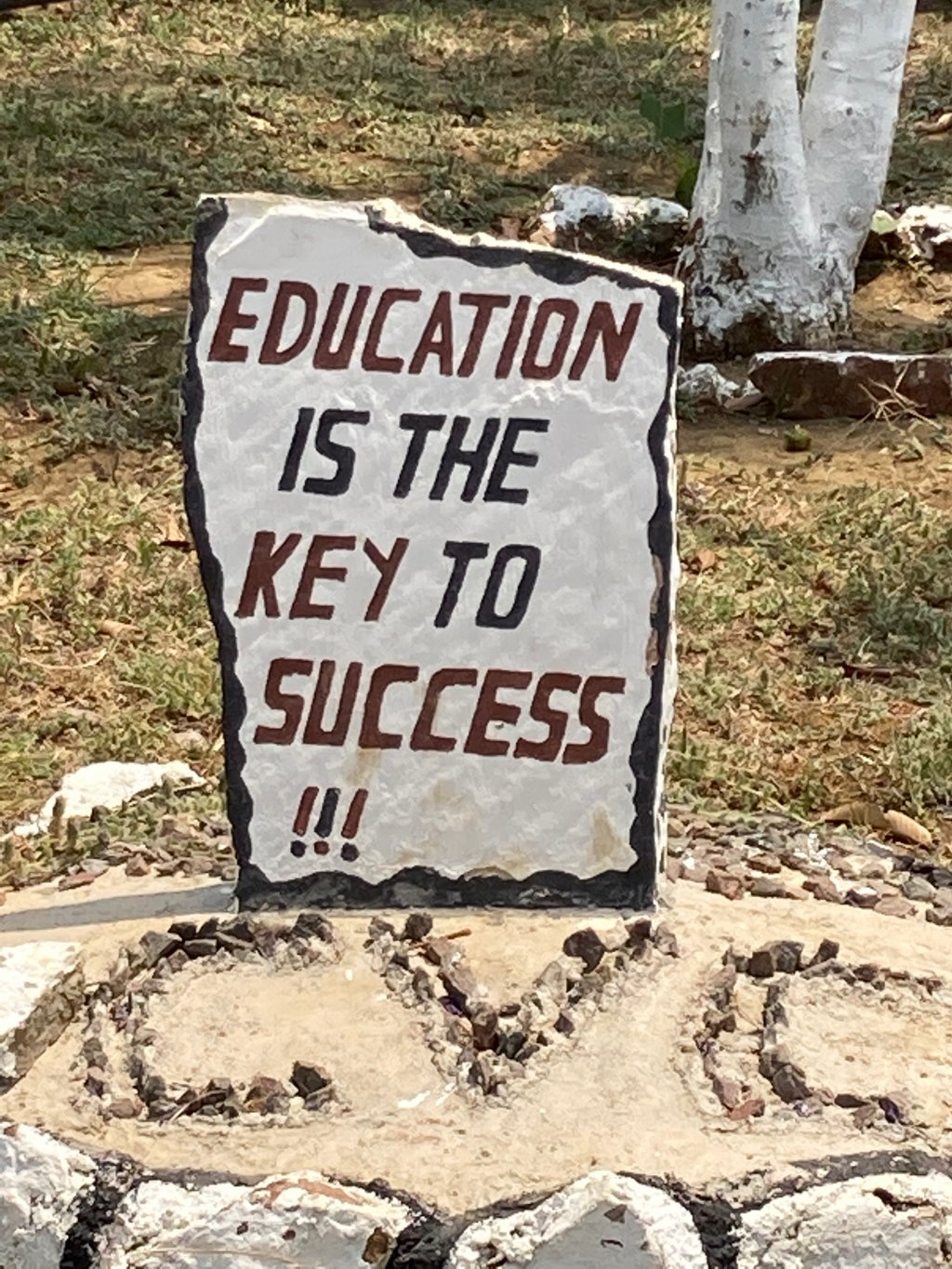
On arrival in Kashikishi, I soon had my first conversation with Jacob Chanda. I had already received the invoices in advance. We had been able to clear up any queries per email. Therefore we could take care of the accounts efficiently.
In 2022, it was possible for us to support 115 school age children, distributed throughout 20 different schools, 20 College students, and 5 apprentices at Vocational Training Centres.
The new President of Zambia, Hakaine Hichilema, who won the election on 12. August 2021 with 59% of the vote, had promised to do more for the education and health of the country. At the beginning of the year he had introduced Free Education. With this, the state schools, also from the 8th to the 12th class were free of charge. This does not apply for the expensive private schools, mostly religious missionary schools, or for boarding schools, even if they are state schools. Despite the free education, many young people who register to apply for our Project, because of their living situation or distance to the school, are compelled to attend a boarding school. In the future we will continue to cover the costs of boarding, after the choice of school has been carefully checked. Because boarding schools are more expensive, we will accept less secondary school children, so that we keep within our budget. It is very important to us that we can also invest in further education. We want to keep the number of College students that we support, and increase the number of apprentices at the Vocational Schools to 10.
As in every year, I chose one or two schools and a College or a Vocational Training Centre to visit, with Jacob Chanda. This year it was the Kawambwa Boys Technical Secondary School, the Don Bosco Agricultural Training Centre and Nchelenge Secondary School. This government school was opened in 1962. 587 school girls and boys are being taught, but only boys can be boarders, the girls can only attend as a day school, because there are no living quarters for girls. There is no money to build houses with sleeping quarters for girls.The school building is in a bad condition. Despite this, it is a good and motivated school.
The representative for the school inspectors, Mr Muwita, gave us a tour of the establishment. It is self-sufficient, with a vegetable garden, cows and chickens. One of the positive consequences of this, the school children are prepared for a training in agriculture. In the workshops, metal-working and carpentry are taught. STEM stands for the subjects: Science, Technology, Ethnology and Mathematics
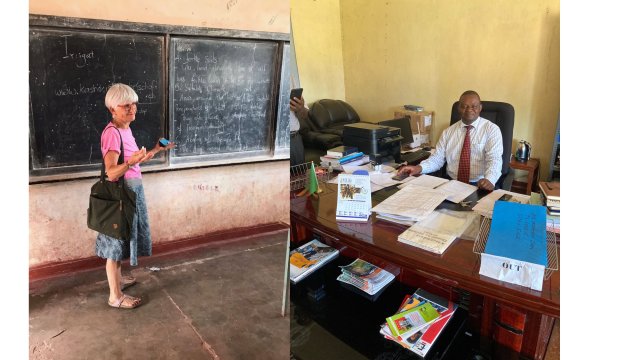
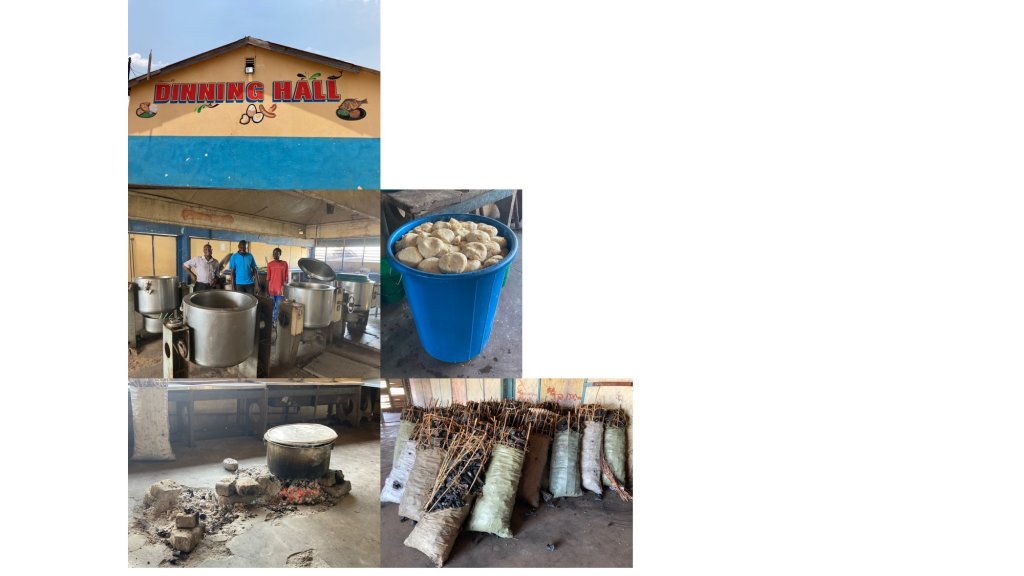
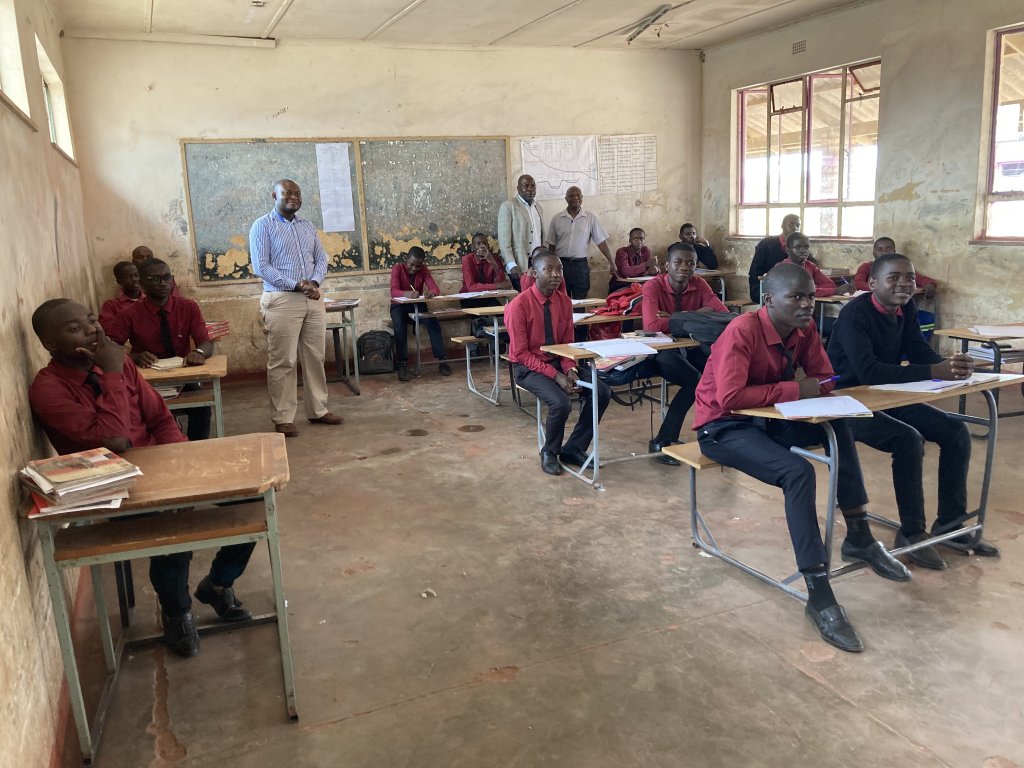
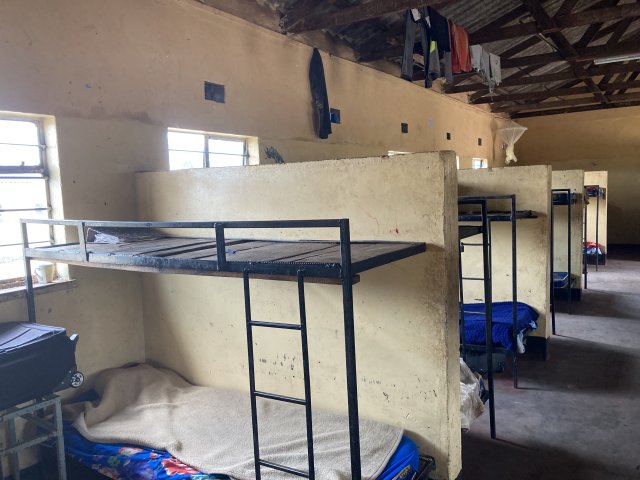
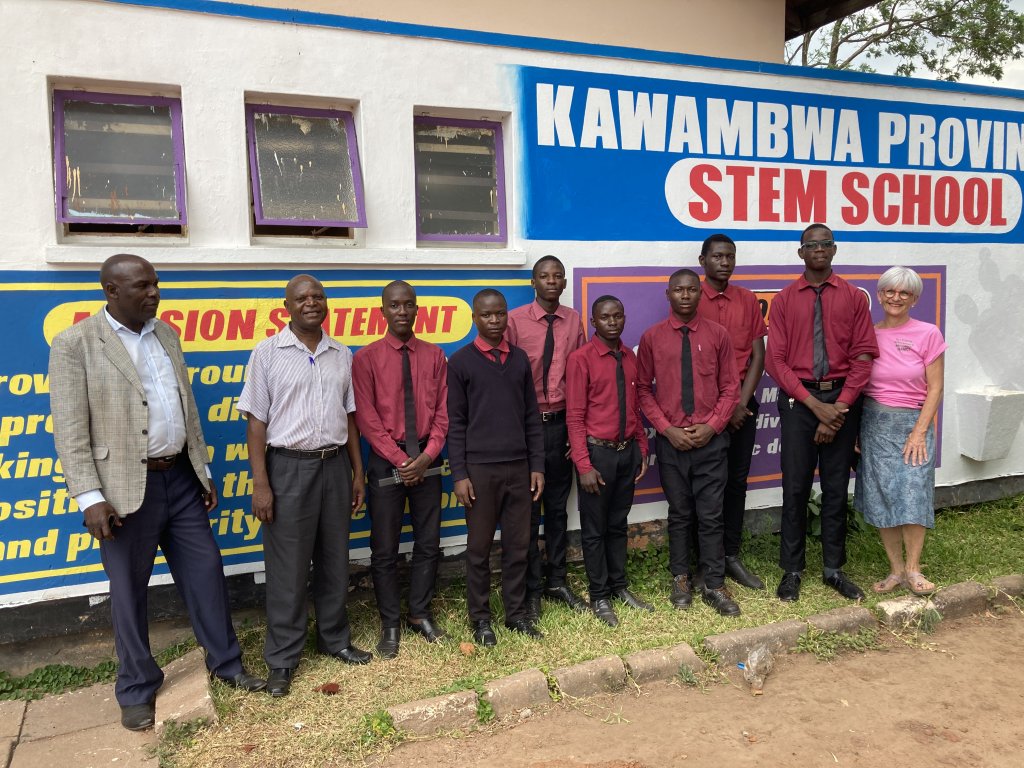
Group Photo with our sponsored school children
After this, we travelled for another hour, mainly on dirt roads, past beautiful settlements, to the Don Bosco Agricultural Training Centre in Lufubu. We had visited and got to know this agricultural missionary school in the previous year. We were keen to find out how Winter Chama and Helen Chitondo had got on, as they were close to their final exams last year. We had the opportunity to chat with Winter. Despite his limited knowledge of english, he spoke very expansively to us. He had enjoyed the training. The hard work and the implementation of the theory into practical use he had found challenging. In the future he wants to specialise in animal husbandry. Unfortunately we couldn’t speak to Helen, as she was ill and on the way to see a doctor.
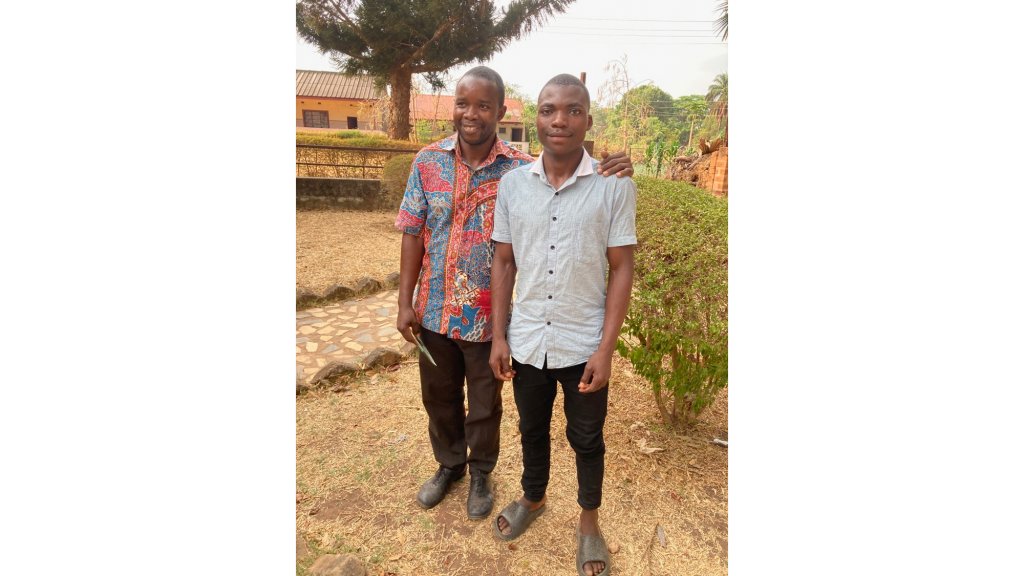
The Nchelenge Secondary School is one of the schools close to Kashikishi, a state day and boarding school. Jacob Chanda and I visited it, together with 2 doctors and 2 medical students from Basel, who in the course of their elective study year were completing a 2 month internship at the St Paul’s Hospital in Kashikishi, and wanted to know more about a school.
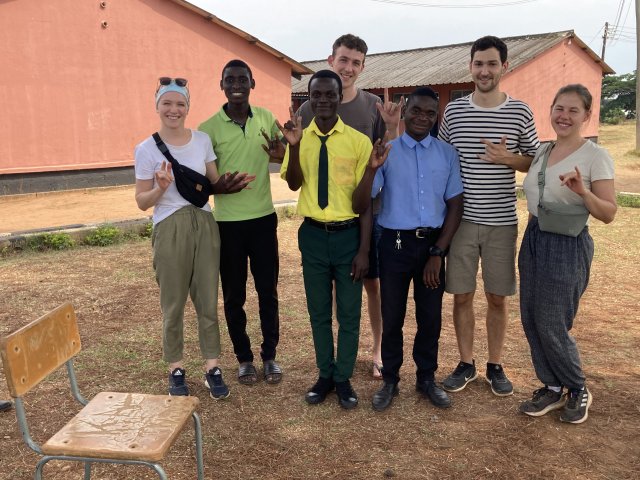
The school accommodates 1300 pupils, of which 400 girls and 200 boys are boarders. This school buildings are also in a very bad state of repair. The beds in the sleeping quarters don’t have mattresses. As a consequence of bringing in free state education, more children can attend school, but in the classrooms there aren’t enough desks and chairs.
We were received by Mr Gengbwa, the principal of the school, and introduced to some of the pupils supported by us.
A small group of deaf children attend a special class. We were allowed to visit them in the classroom. The very exuberant young people, who talked to each other in sign language, made a huge impression on us.
-45c48.w1024.jpg)
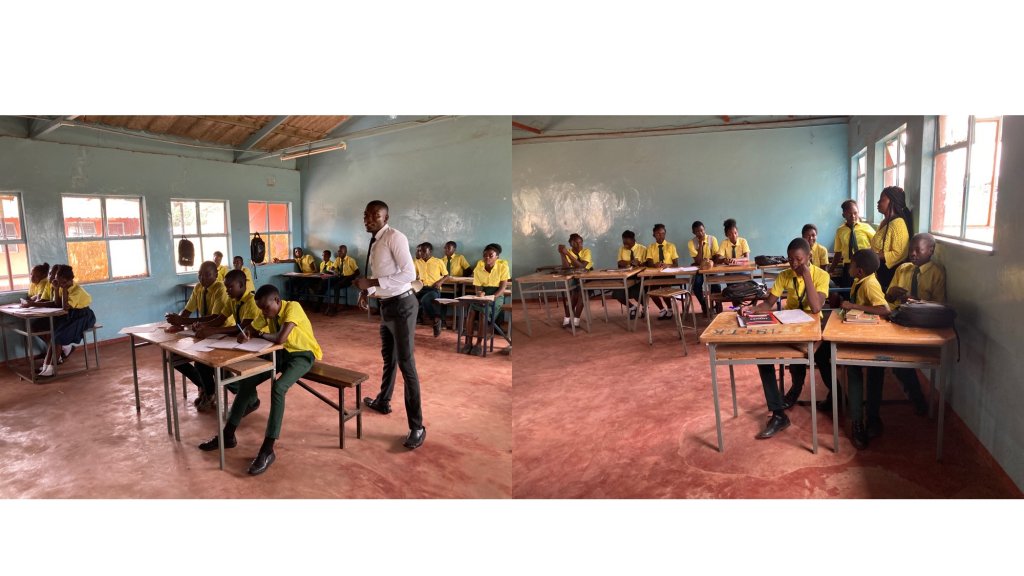
60% of the students supported at a College by our project, attend the St Paul’s College of Nursery and Midwifery. Sister Juliet Irene Musonda is the principal of the College. We met her representative, Chibuye Clifford who is also an instructor at the College. In the future we want some of the students to commit, with a Bonding Paper, to at least 2 years work at the St Paul’s Hospital, after their training. In this way the hospital will benefit from the investment in their expertise.
On this year’s visit we also presented ourselves to the district officer for educational standards, Mr Evans Chibuye Samushi, in order to inform him about our project, which we have been operating for 20 years.
Unfortunately, in the last few years, many organisations, for example, World Vision, CHAZ (Church and Health Association of Zambia), have resigned from the support and educational advancement of orphans, half-orphans and vulnerable children. The state only offers a very few scholarships or bursaries for education. According to Mr Samushi, the government plans to soon make more scholarships/bursaries available for a university education. Therefore, the Basel Support Association for Medical Collaboration in Kashikishi and the Nchelenge District is currently almost the only organisation which, with a restricted budget, supports an Orphan School Project. This will become increasingly a bigger challenge for us, because charitable foundations, which have supported us for many years, in the future will finance other projects. One reason for this is the war in Ukraine.
Therefore we are even more reliant on every financial contribution, and are very grateful for your support for a good school education and training for the young people in Kashikishi, Zambia, and we thank you very sincerely.
To end, I would like to relate 2 short success stories of our Orphan School Project, that Jacob Chanda sent to me. We are obviously very proud of such stories.
-c9f0f.w640.jpg)
Charity Chomba
We supported her from the 10th to the 12th class at the Clifton Secondary School, and from 2010 to 2012, by the teacher training at the Mansa College of Education. She was appointed by the government as from 2015 to 2018 as Class Teacher. She studied further, at her own cost, in ICT (Information Communication Technology), and obtained her Diploma this year (2022). She also supported her younger sister, who successfully trained to be a nurse, at the Mansa Nursing College in Mansa.
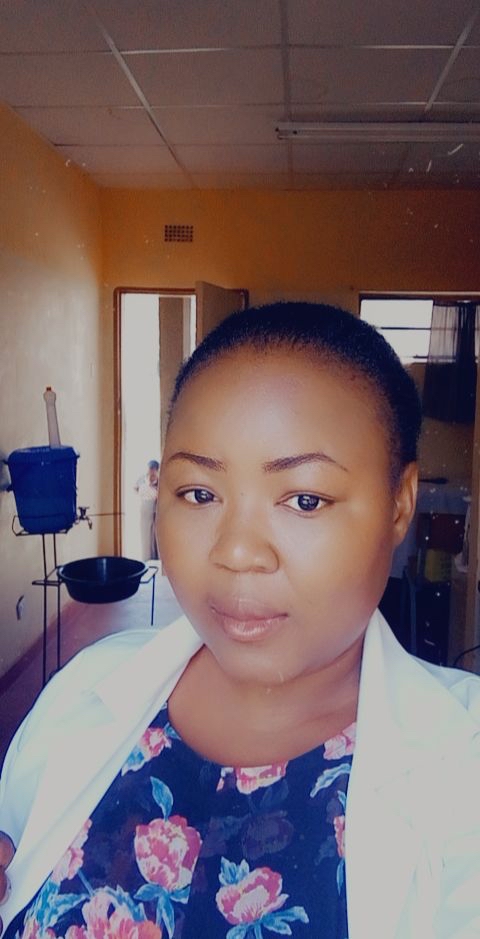
Esther Musonda
As a result of our support, 2014 - 2016, Esther trained as general clinical officer at a College. Then she was employed by the government in the Ministry of Health and leads a tuberculosis program in the Chipili District. In the future she would like to obtain a bachelor degree in medicine and surgery. in addition she has a passion for psychosocial counselling. The thanks the project for the support. Without the Orphan School Project she would not have been able to complete the training as a clinical officer.
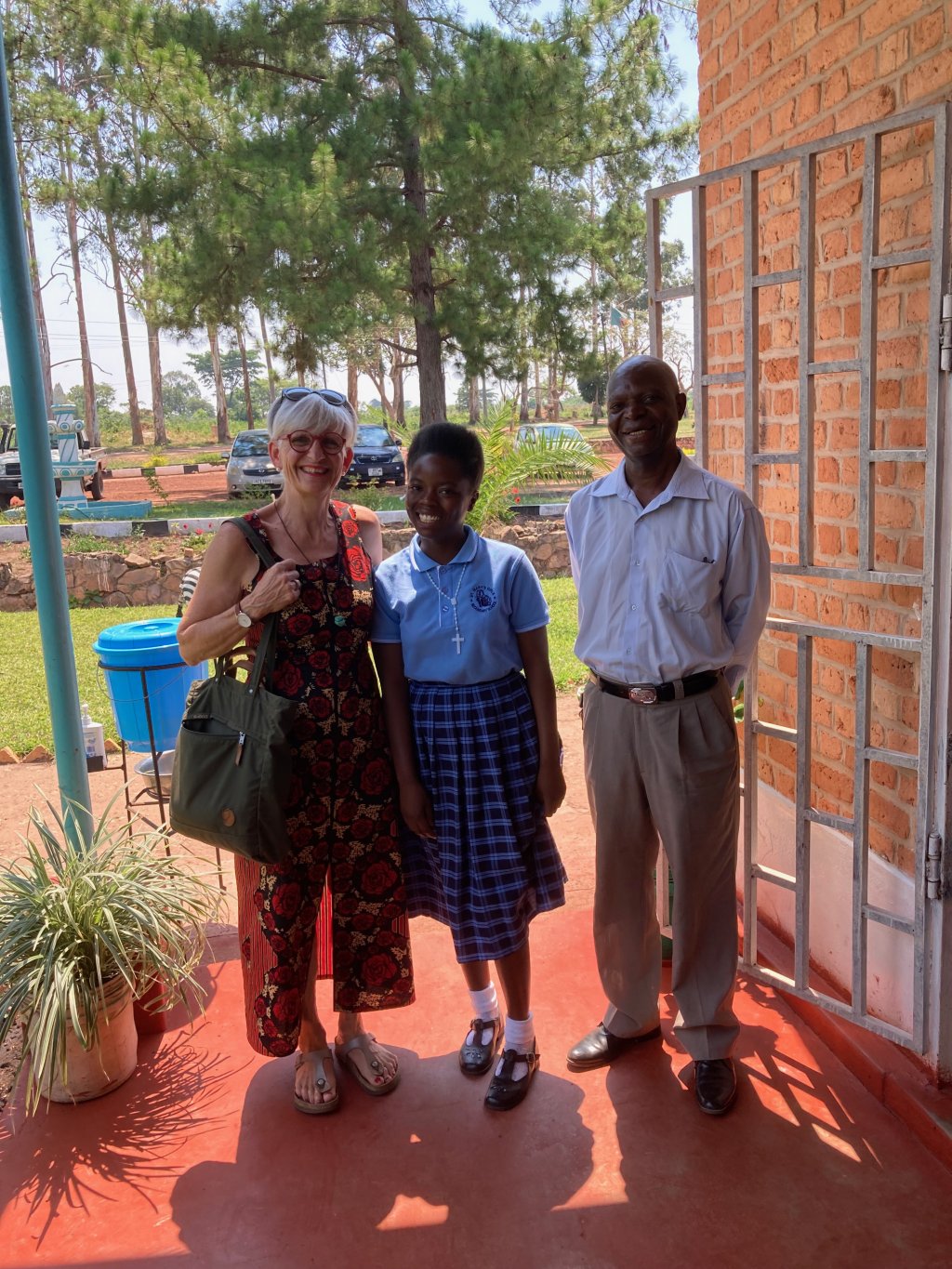
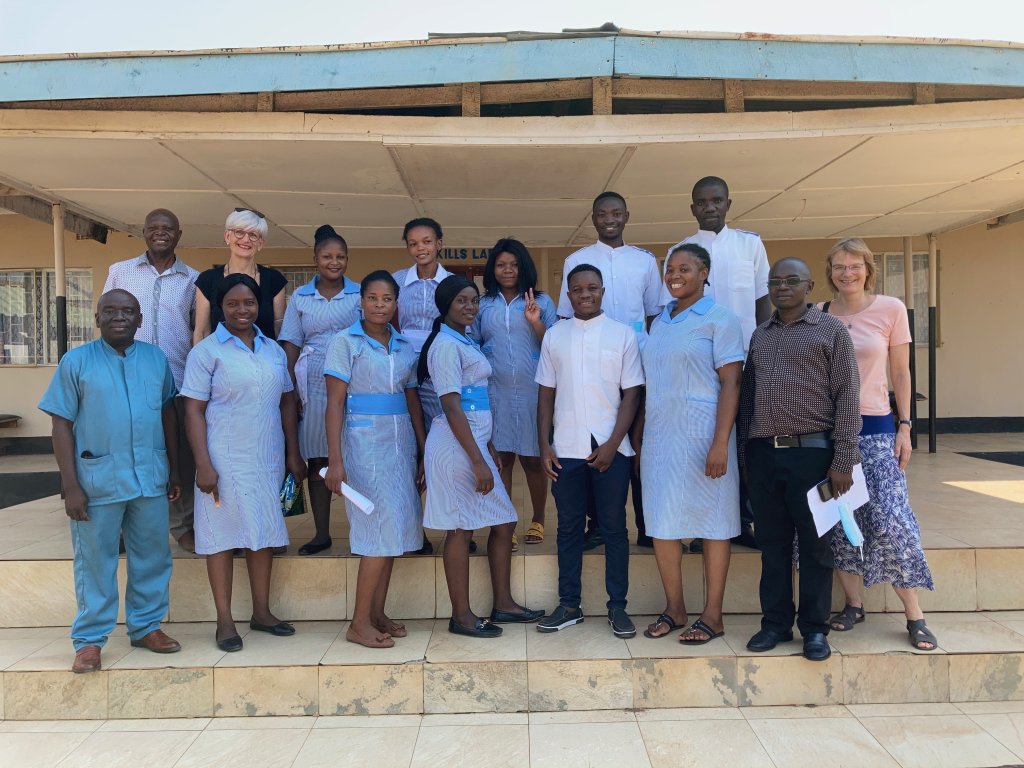
“How can we offer these young people better vocational prospects?”
On the internet I came across the Homepage of the Chikupi Vocational Training Centre, which was founded and is supported by a Swiss financial aid organisation. I got into contact with the persons responsible, Anna and Ueli Schäli-Renggli. From a very interesting and informative conversation, we learned a great deal about the vocational training in Zambia, and received a large list of such organisations, Vocational Training Centres (VTC). The VTCs are subject to the state supervisory authority, the TEVETA. This stipulates requirements and distributes licences to the centres, and strives to provide reliable and achievable skills to all member students, thereby contributing to the economic development of Zambia.
From the list of 282 centres in the whole of Zambia, we selected a few. These we visited, on the journey from Lusaka to Kashikishi, and then later from the home base of Kashikishi. These VTCs need to be easily accessible for the young people of the Nchelenge District.
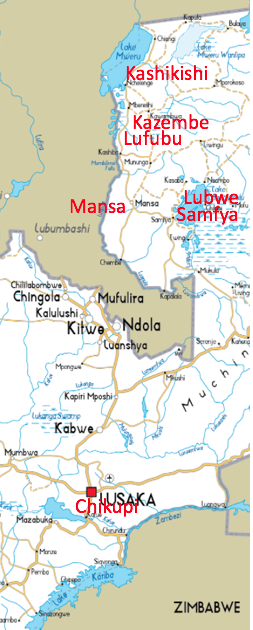
From Kashikishi, near Kawambwa:
Don Bosco Carpentry School, Kazembe
Don Bosco Agriculture Training College, Lufubu
Mansa Skills Training Institute
Don Bosco Mazzarelo Skills Training Centre
- Chikupi Vocational Training Centre, Kafue
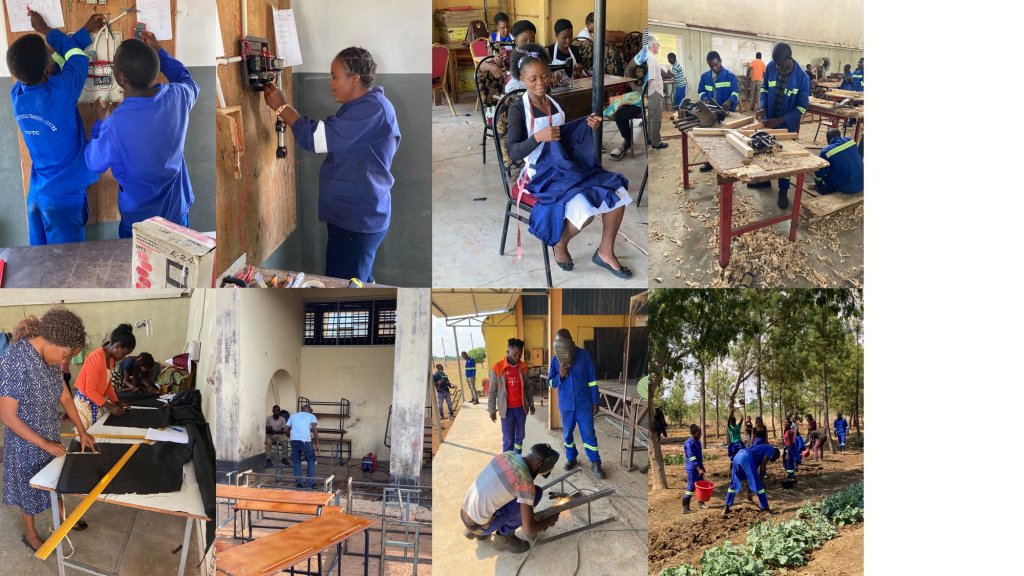
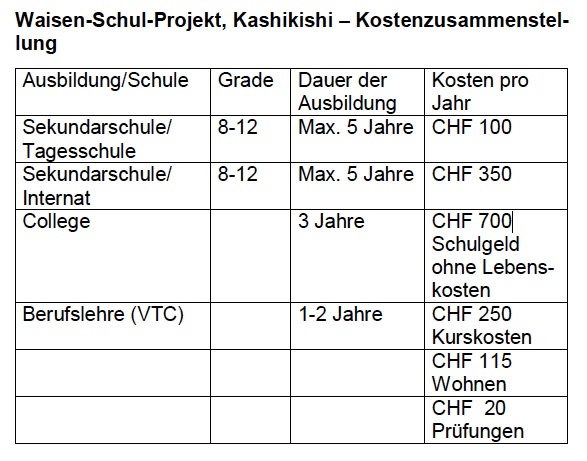
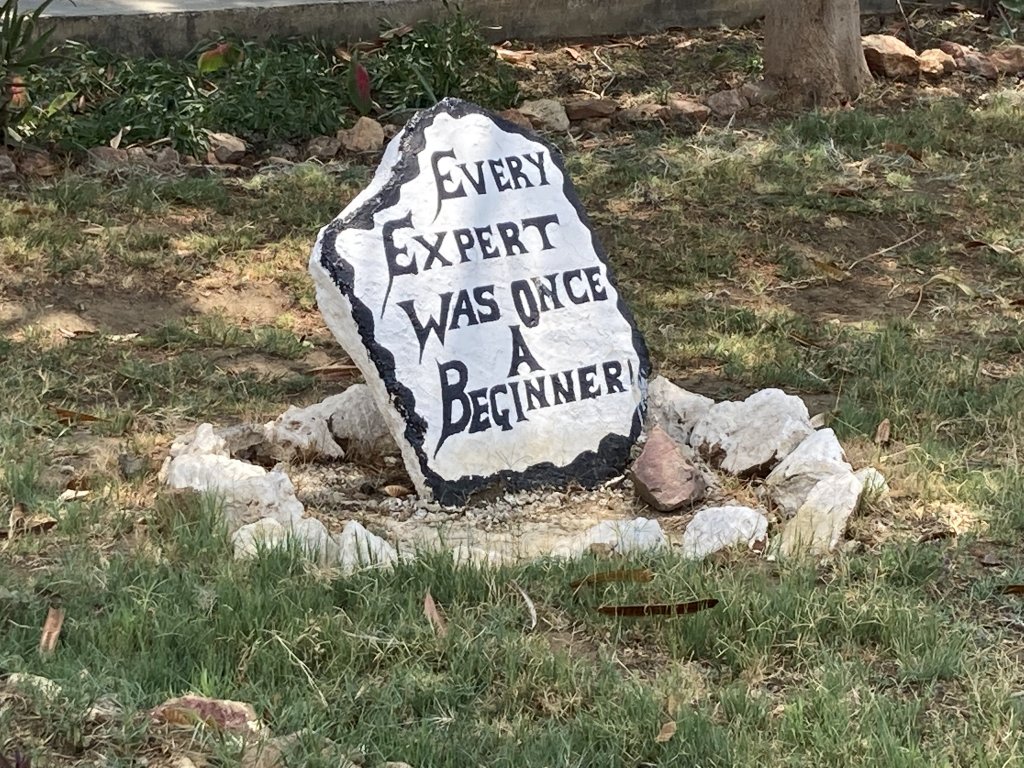
At that time, we had an exciting exchange of information with the local leaders Jacob Chanda, coordinator for the orphan school project and Sr. Honester Tambatamba, head of administration at St. Paul's Hospital. More and more young people are longing for education and want to be included in the orphan school project. There are less and less scholarships available through other organisations such as CHAZ (Church and Health Association of Zambia) and World Vision. In addition, many schools and colleges are not aware of the guidelines for the Orphan School Project, a subsidiary project of the Basle Association for Medical Cooperation.This, and also the poor economic situation, have led to increased demand.
There is a particularly high demand for nursing or midwifery training at St. Paul's Hospital's internal nursing school.
In 2020, out of 20 students, of whom we pay the tuition fees, 14 studied at St. Paul's School of Nursing.
This, and also the poor economic situation, have led to increased demand.
There is a particularly high demand for nursing or midwifery training at St. Paul's Hospital's internal nursing school.
In 2020, out of 20 students, of whom we pay the tuition fees, 14 studied at St. Paul's School of Nursing.
for non-examination classes and with the third trimester for examination classes. The third trimester only started on 4 January 2021 till 19 March 2021 and then the first trimester started for all on 29 March 2021.
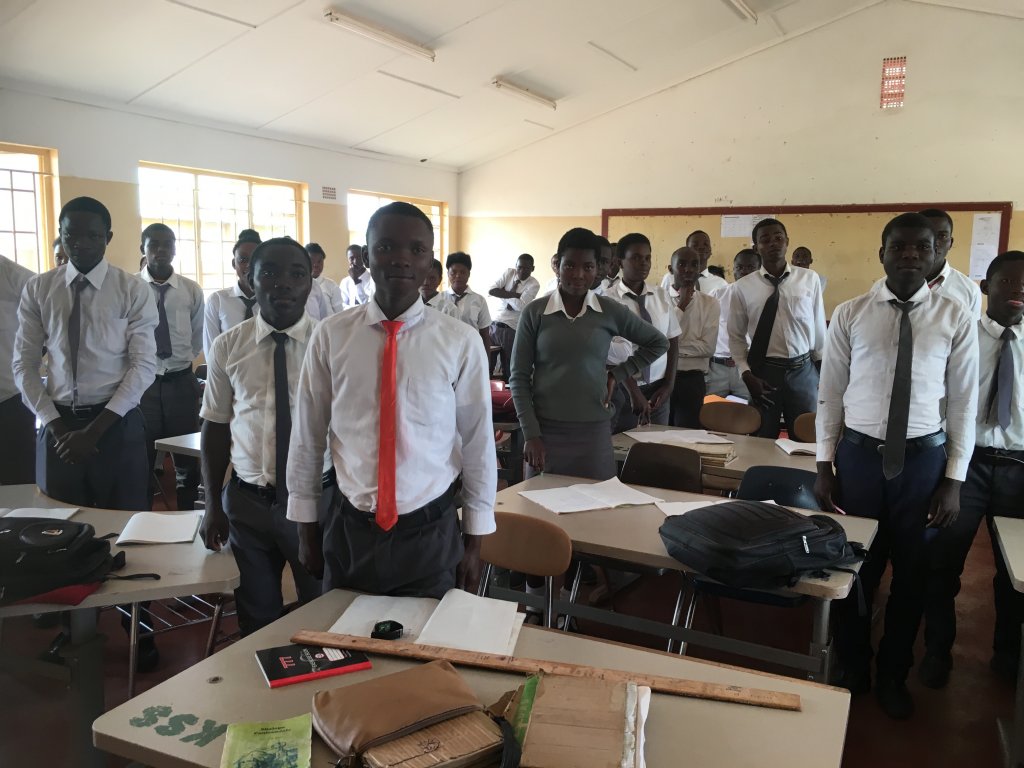
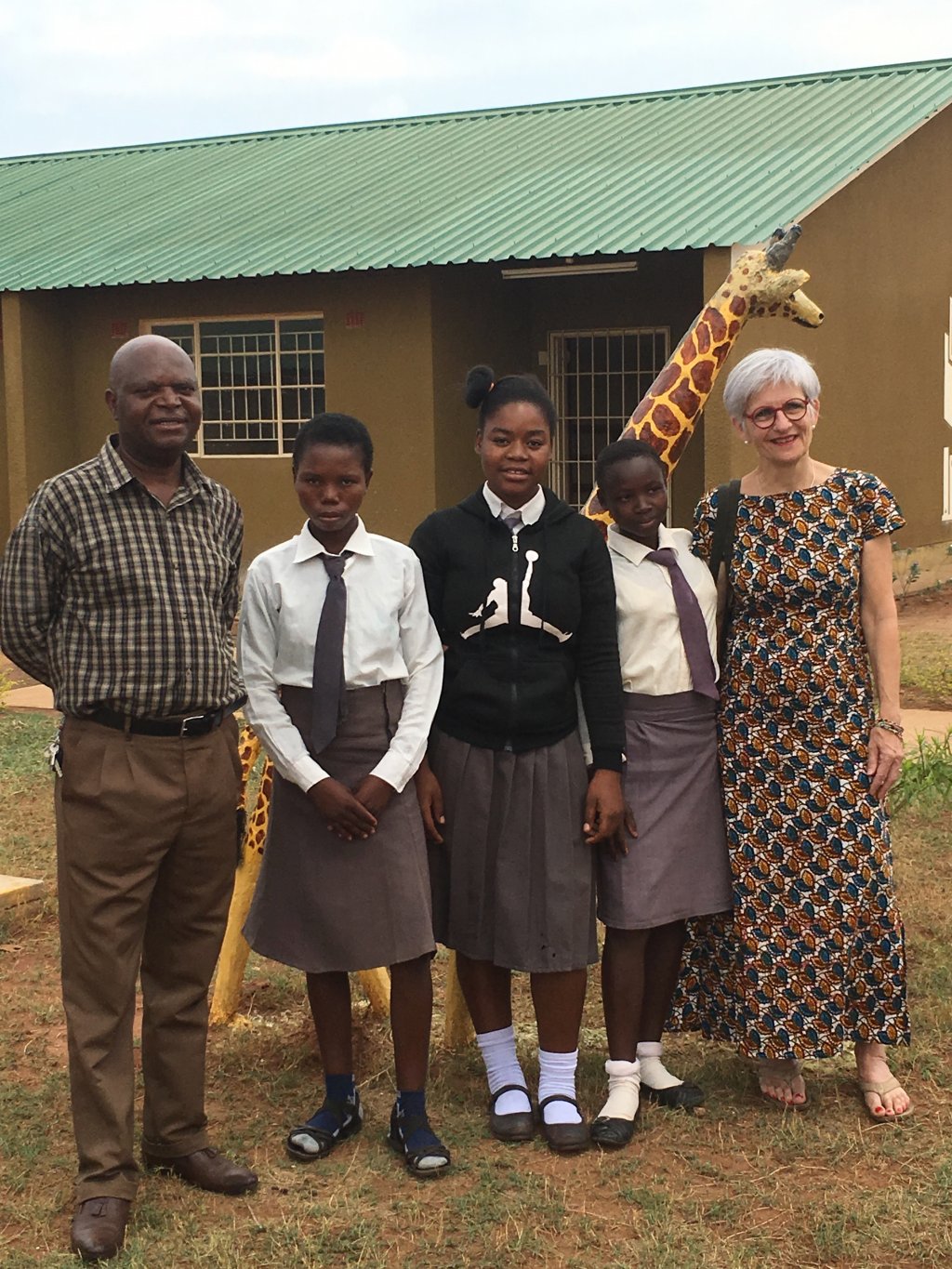
This school was built in 2015 by a Chinese consortium and has space for 400 pupils
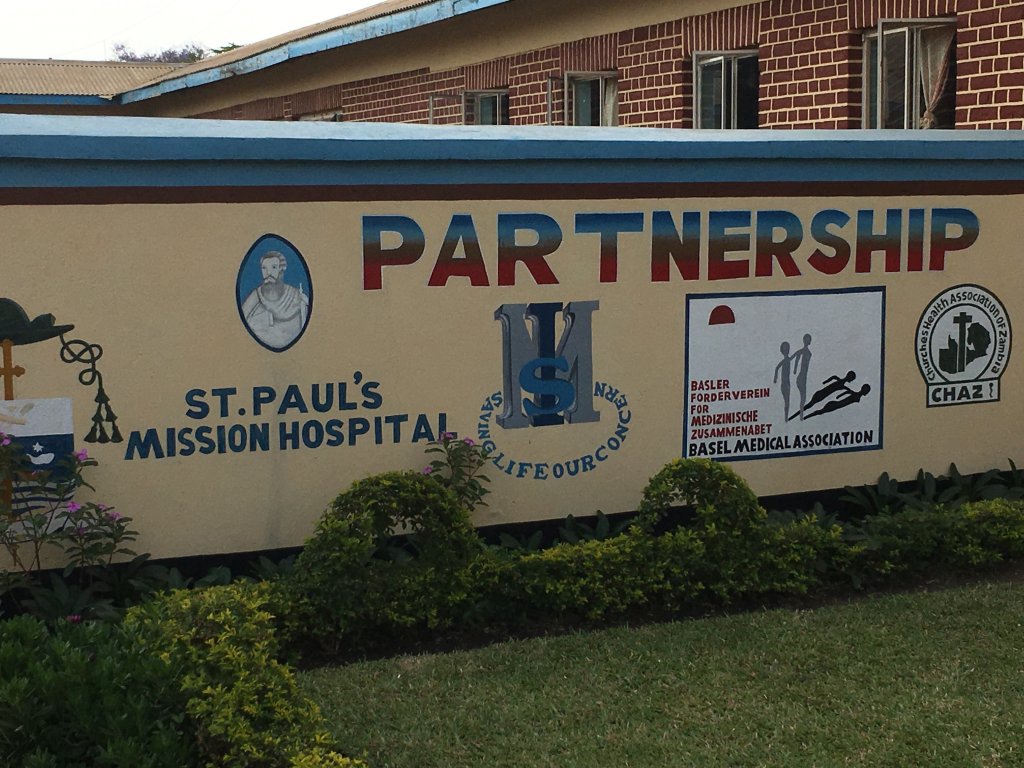
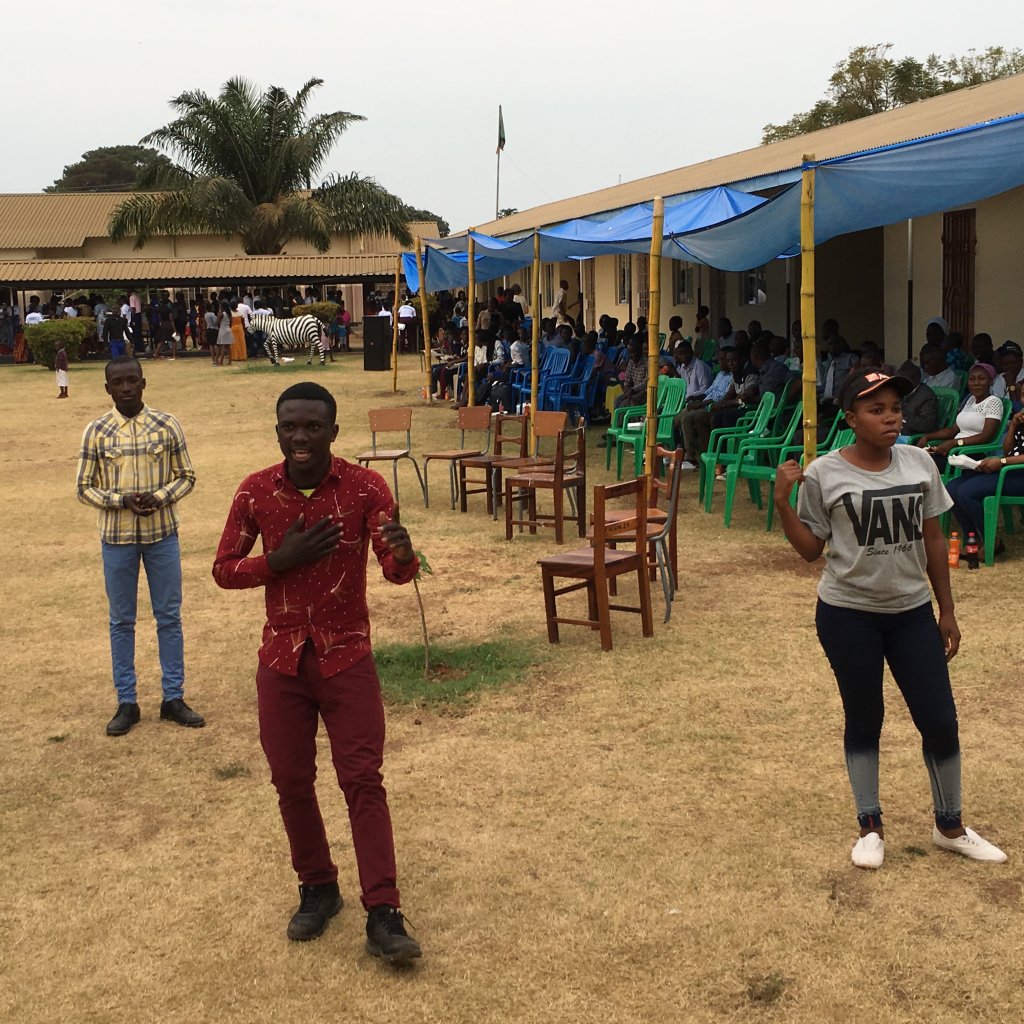
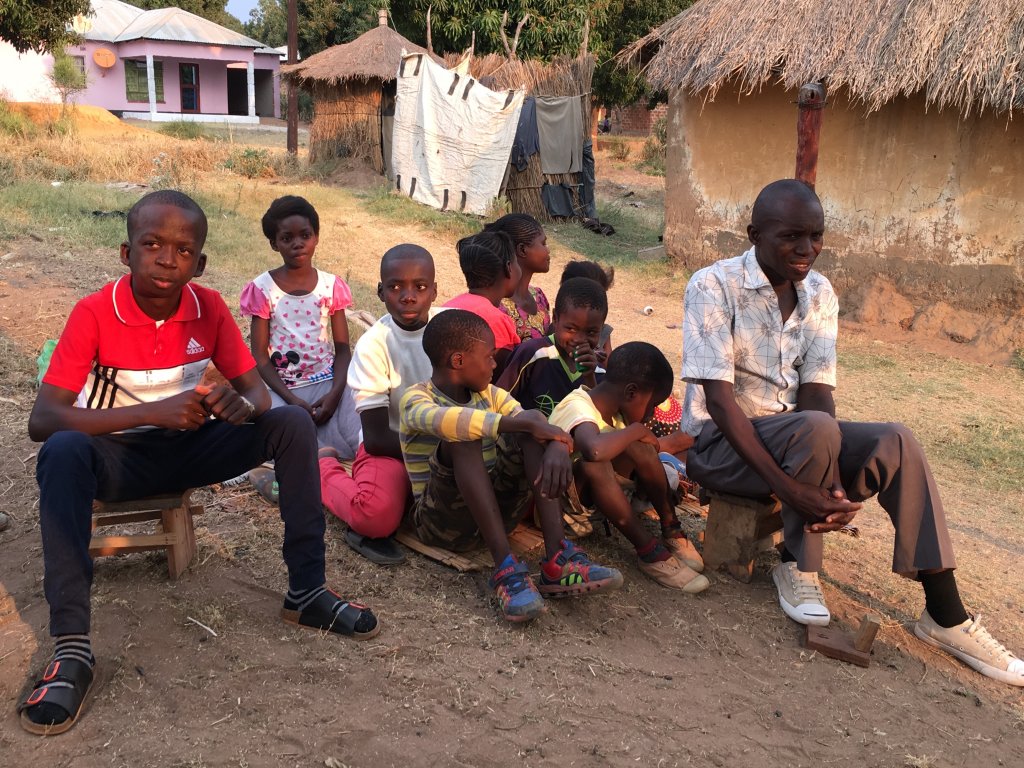
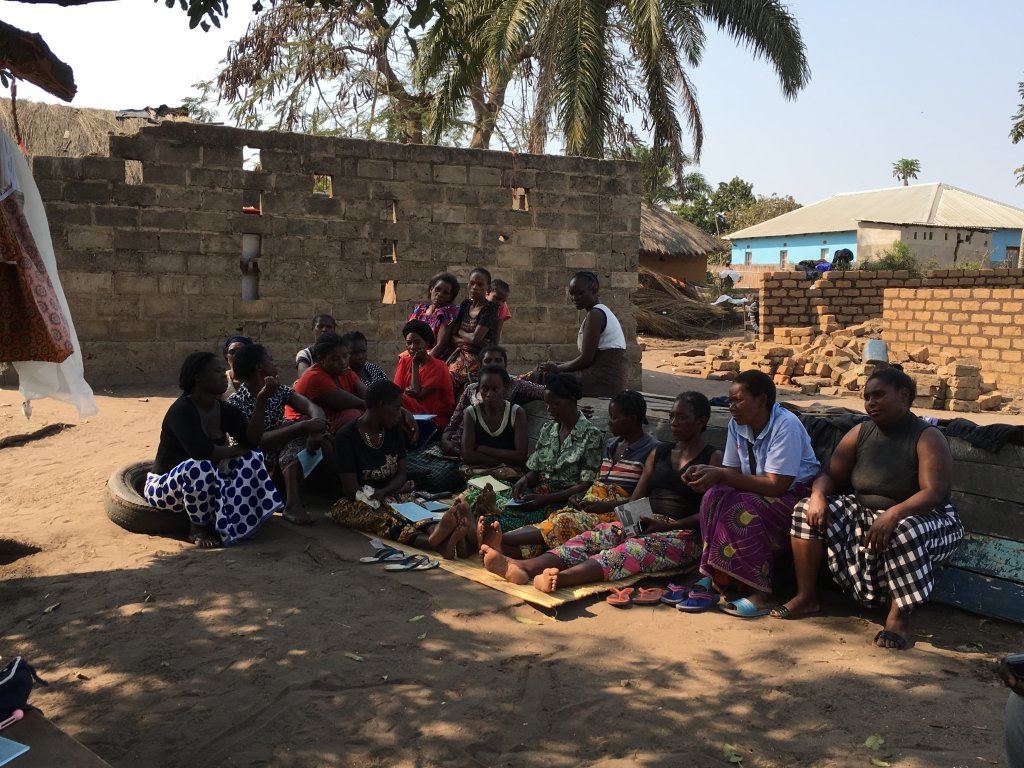
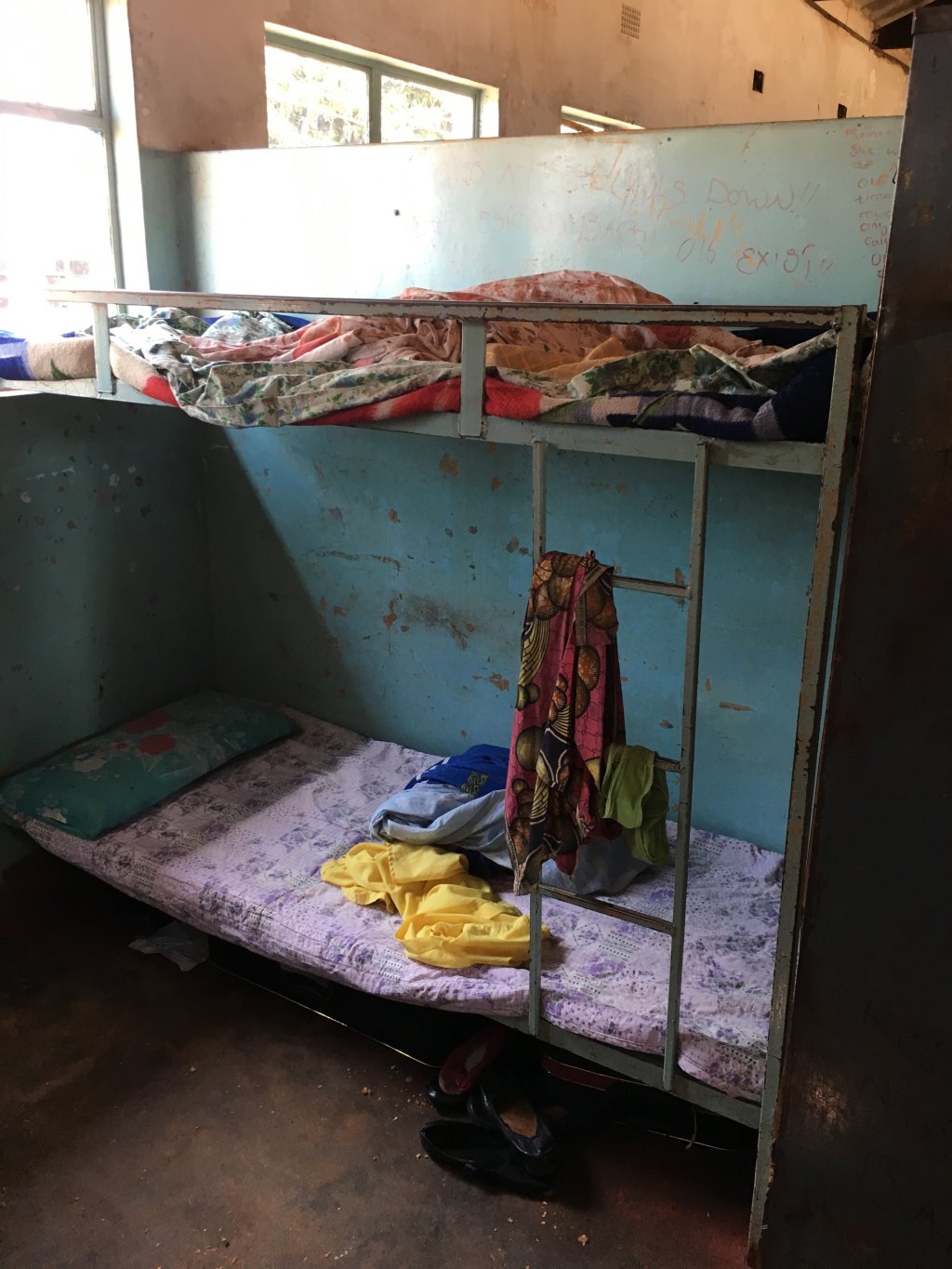
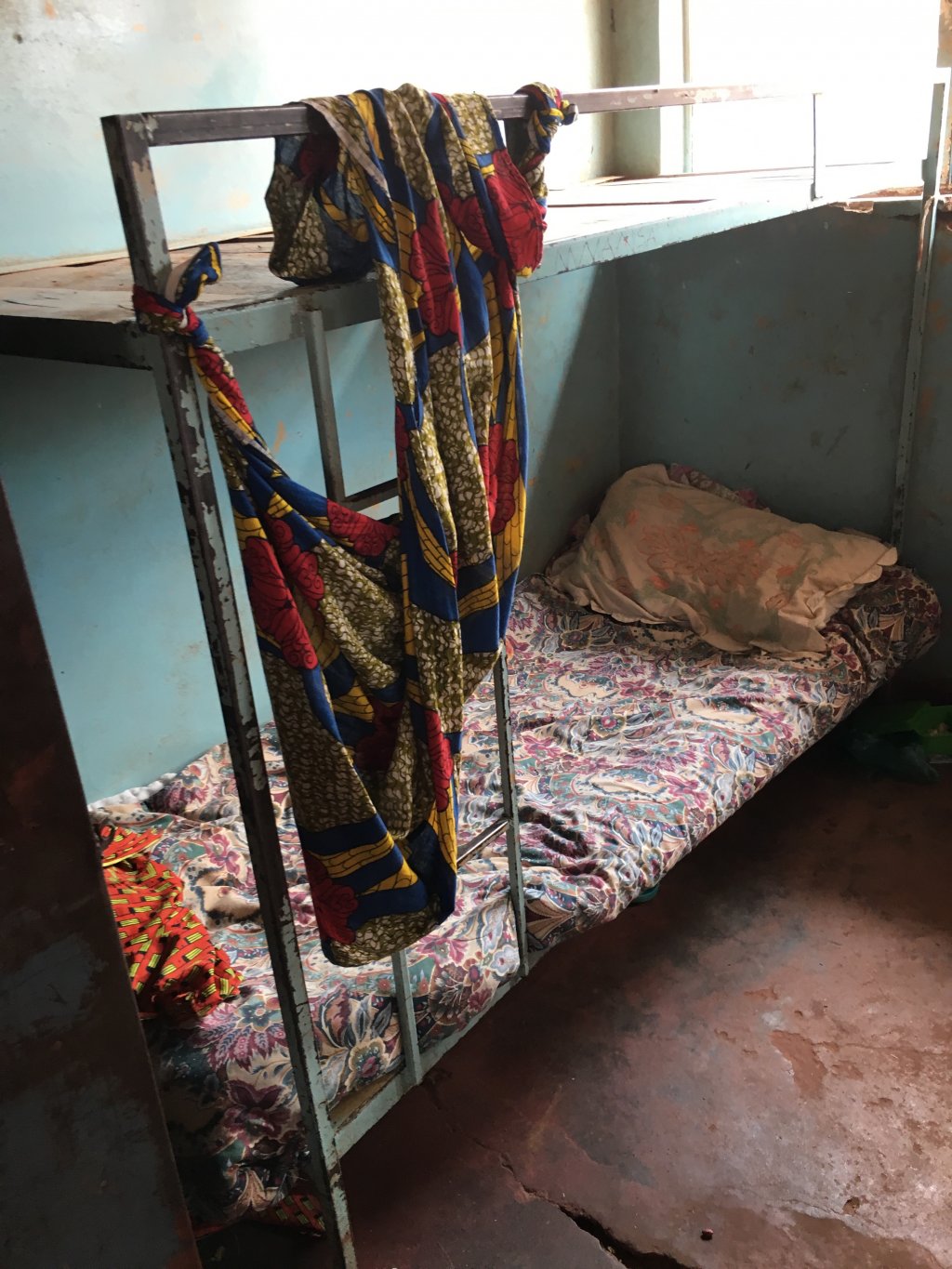
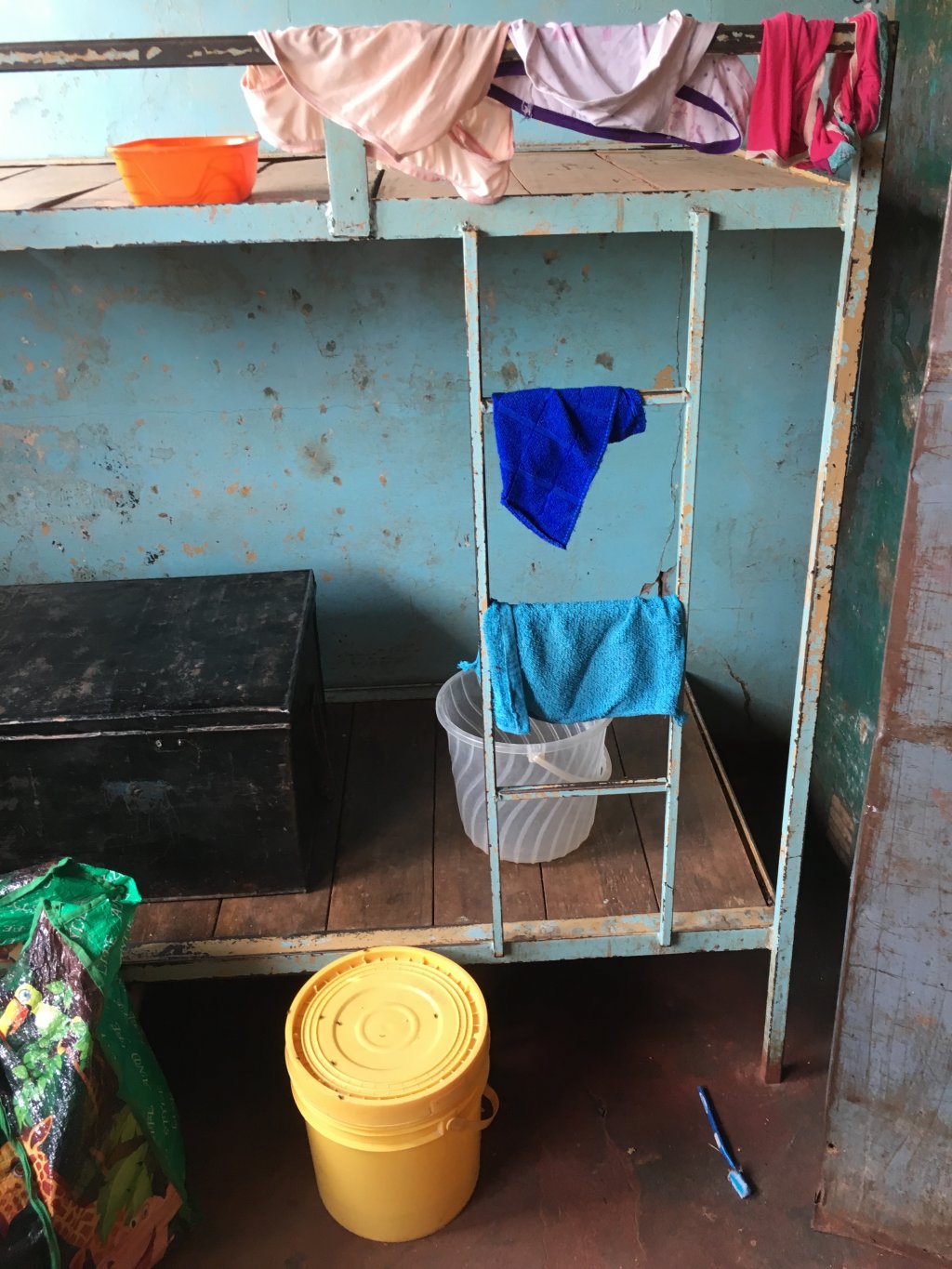
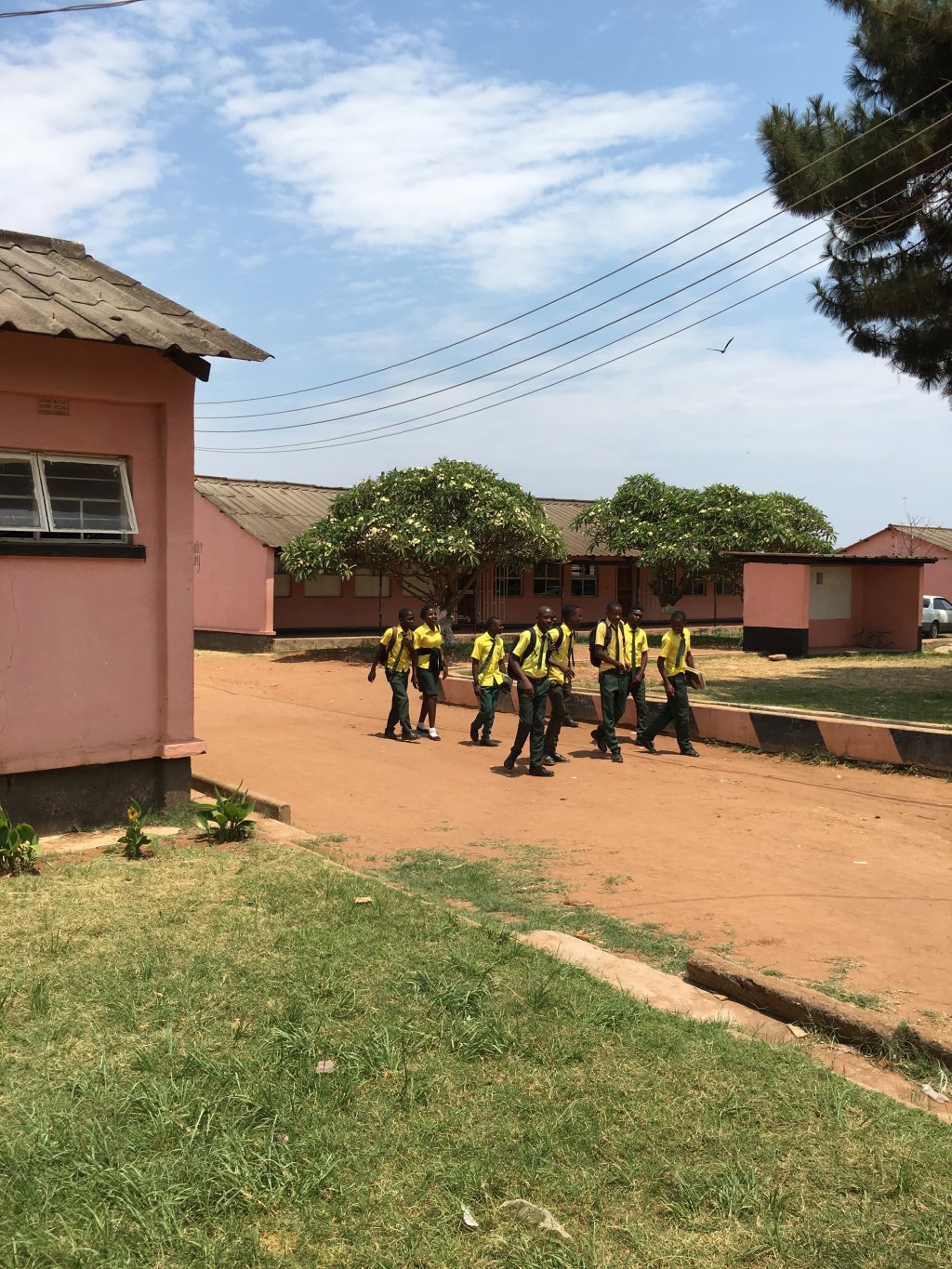
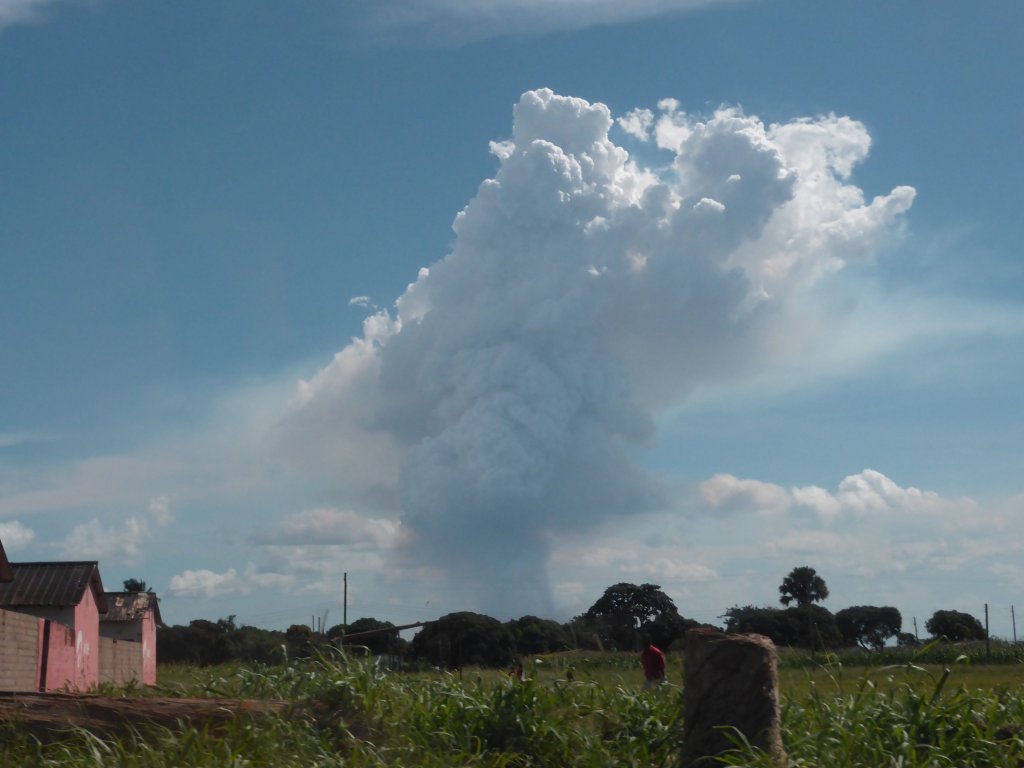
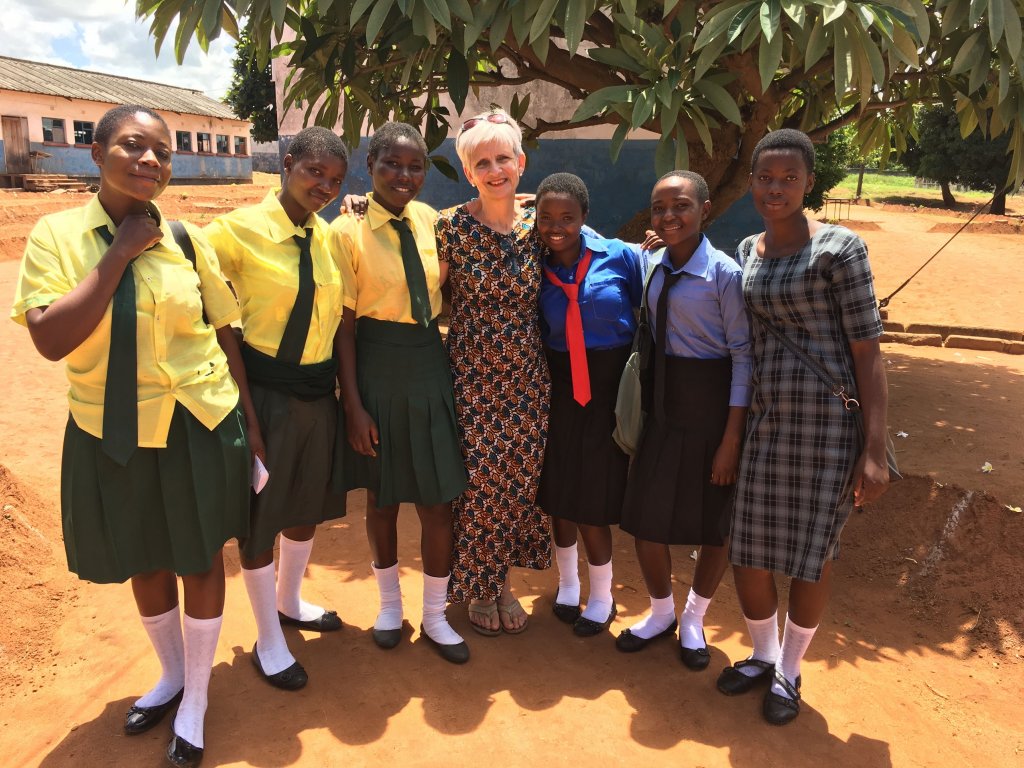
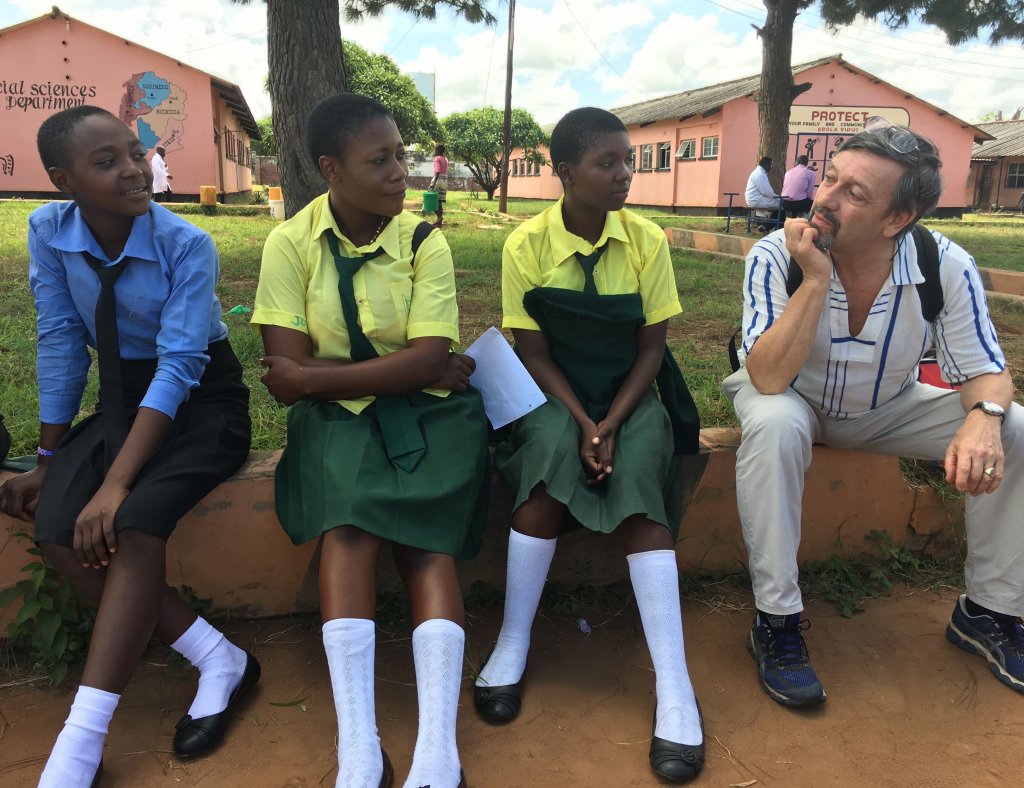
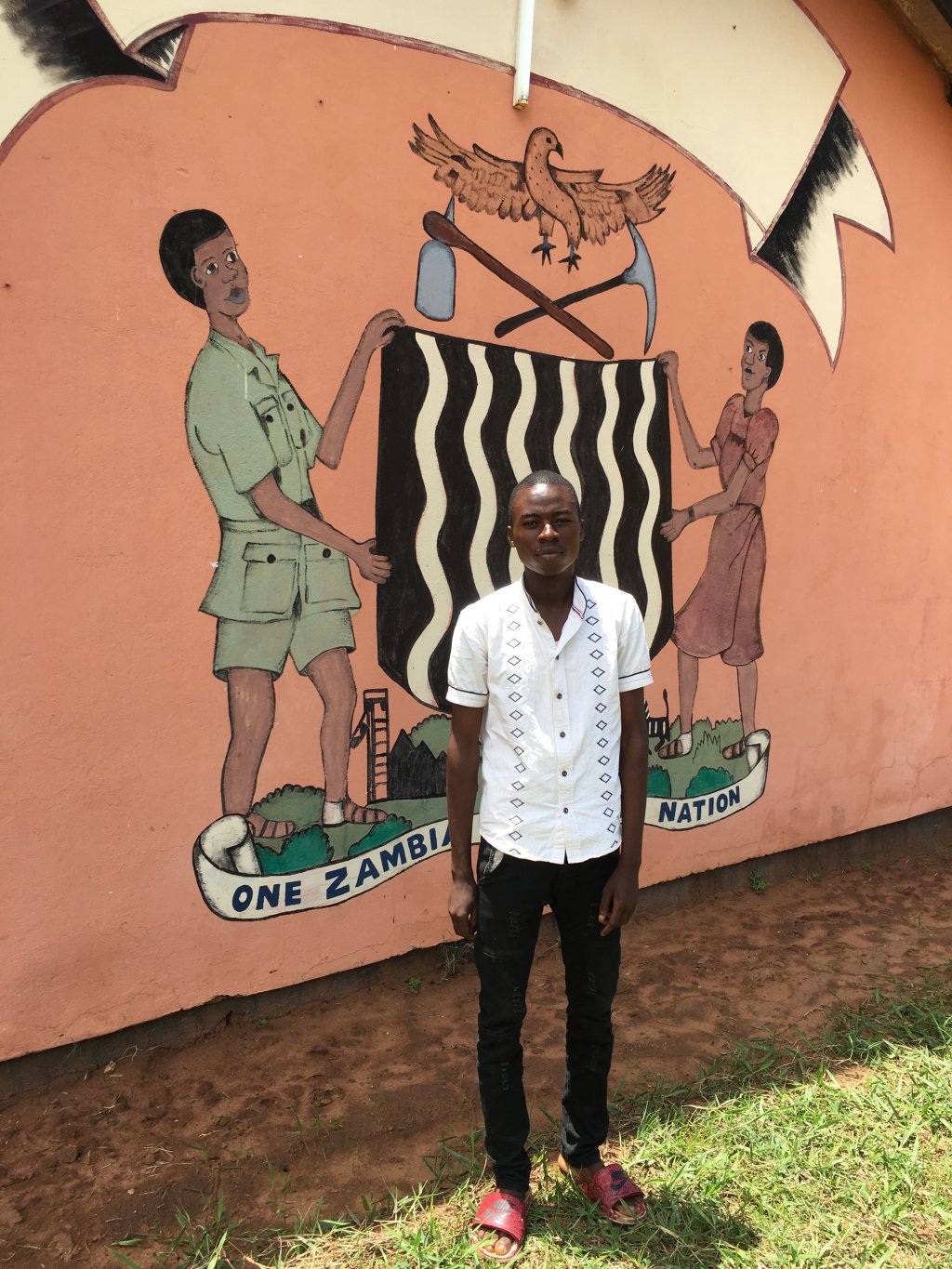
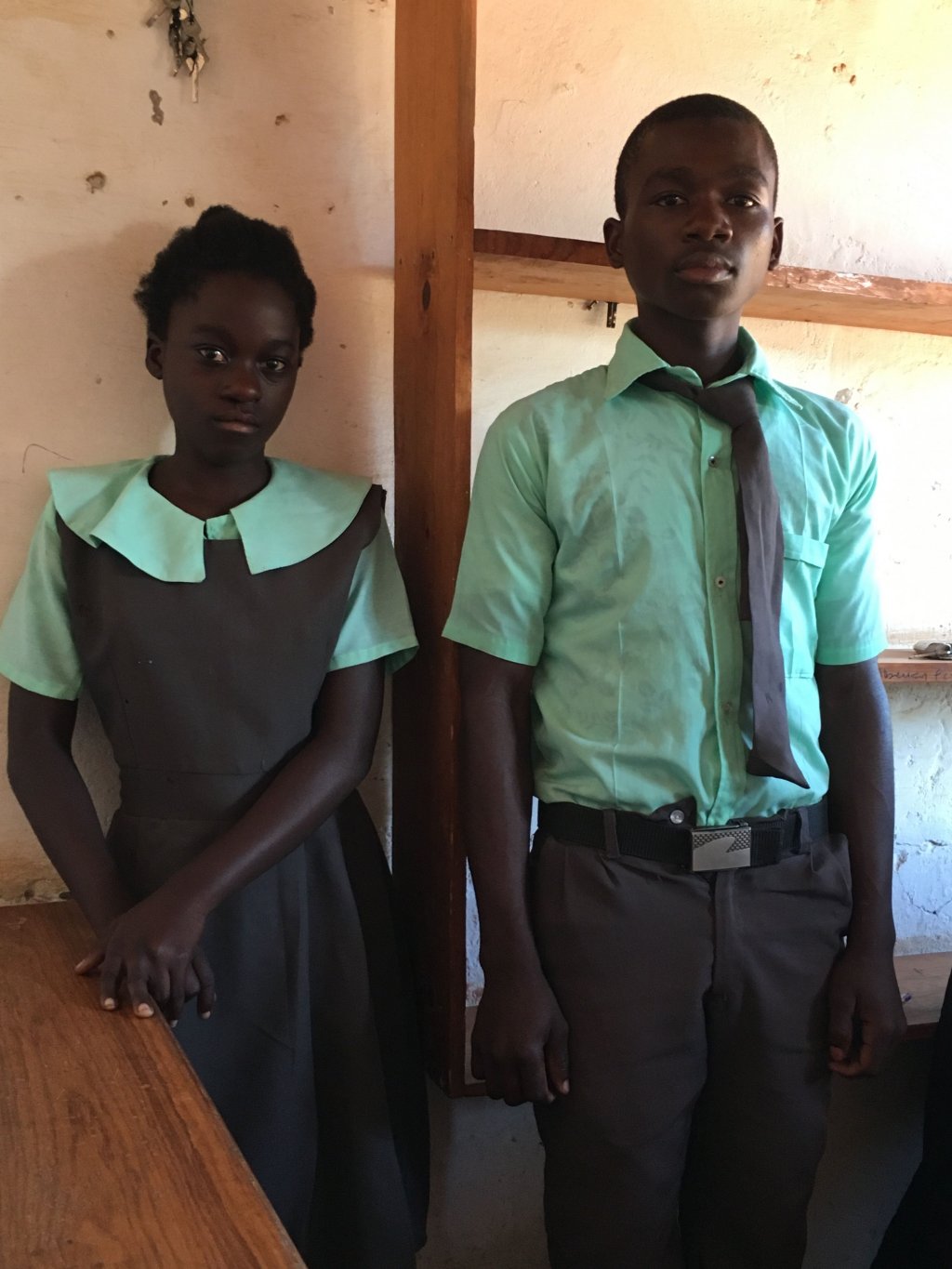
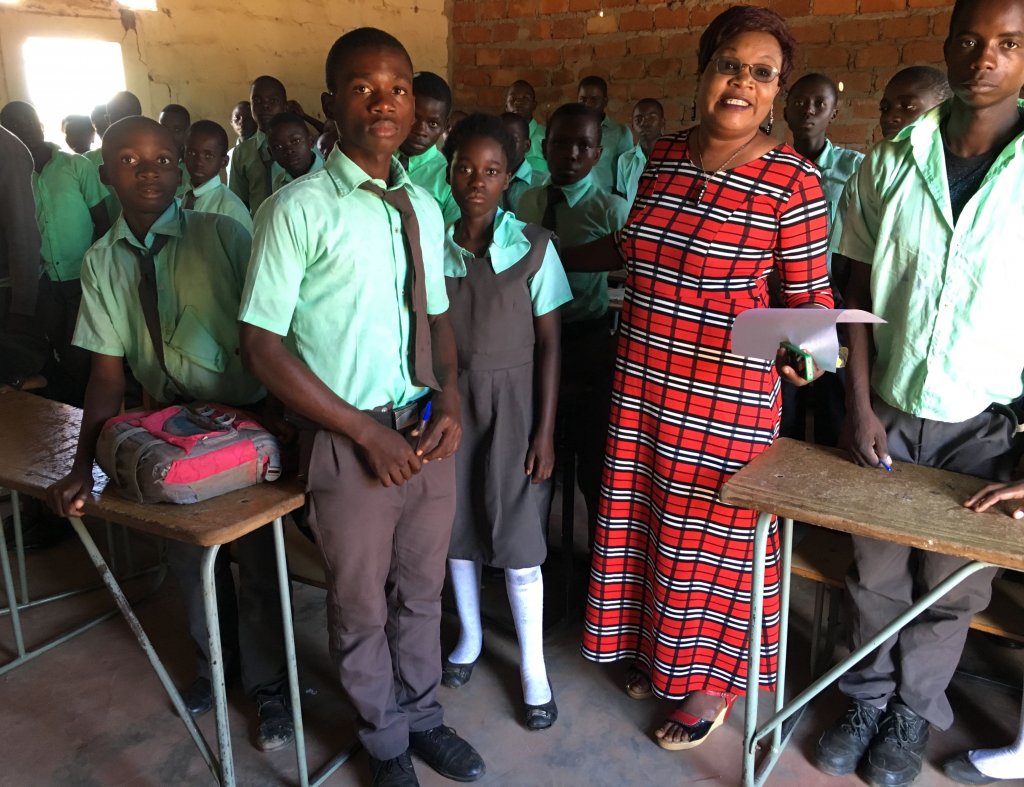
For David it wasn’t possible to go to school for many years, because his parents had died. Only through the Orphan School Project could he grace the school bench. At this school we also got to know Wilmot. A clever boy, who stands out, because he is a lot smaller than his colleagues. The reason is a developmental defect of his jaw joint, which over the years has made it impossible for him to eat properly. We want to help this young boy further and plan a jaw operation by specialists in Switzerland (see “A Jaw for Wilmot”).
We pay the school fees for 13 pupils at the Mutono School. The principal, Mwansa Tarsisias is also on the board of the St. Paul’s Hospital, and choir master of the church choir.
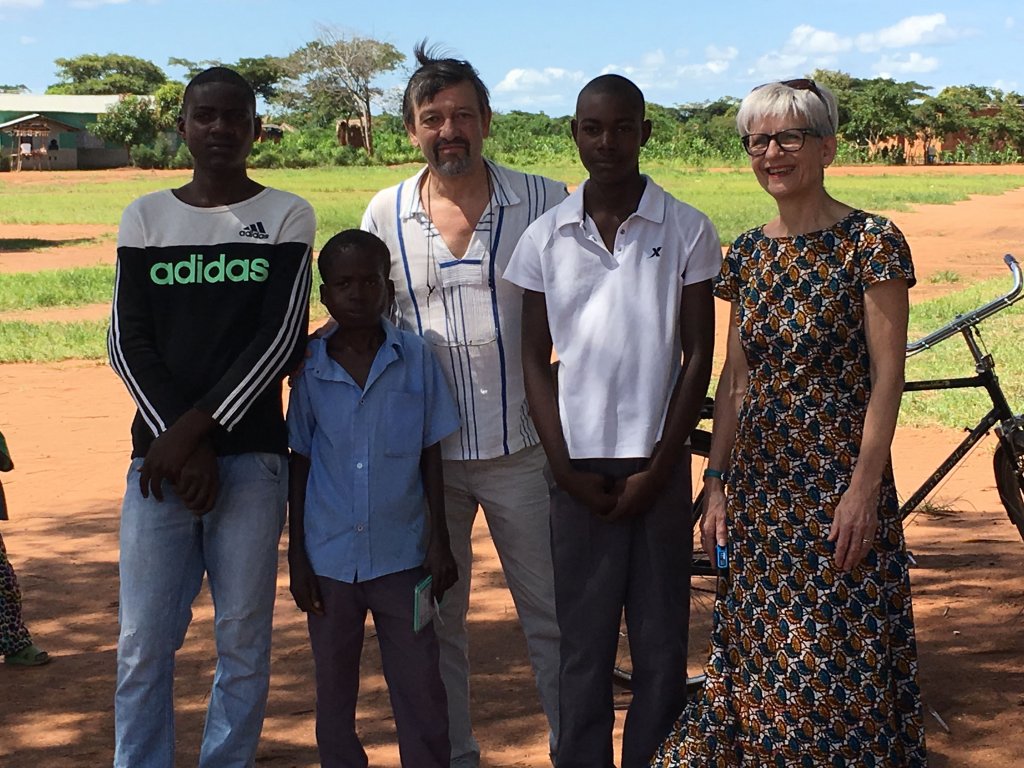
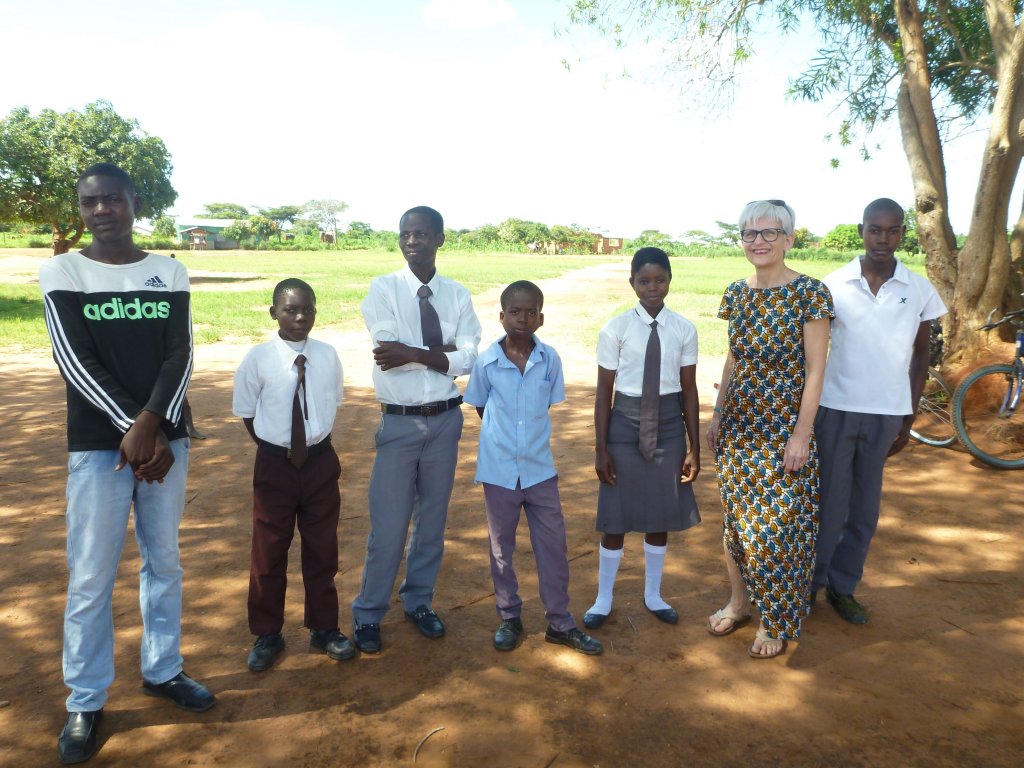
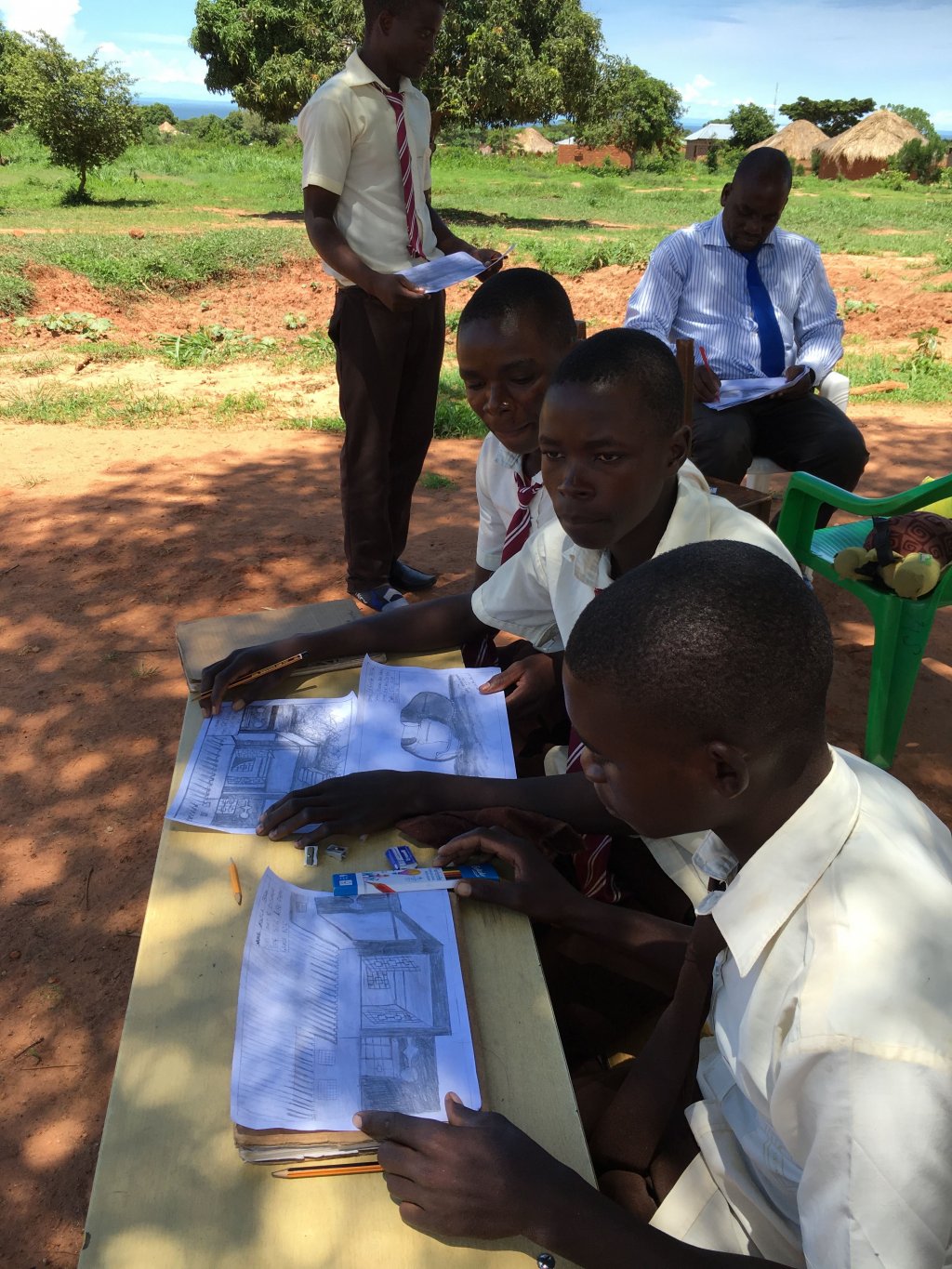
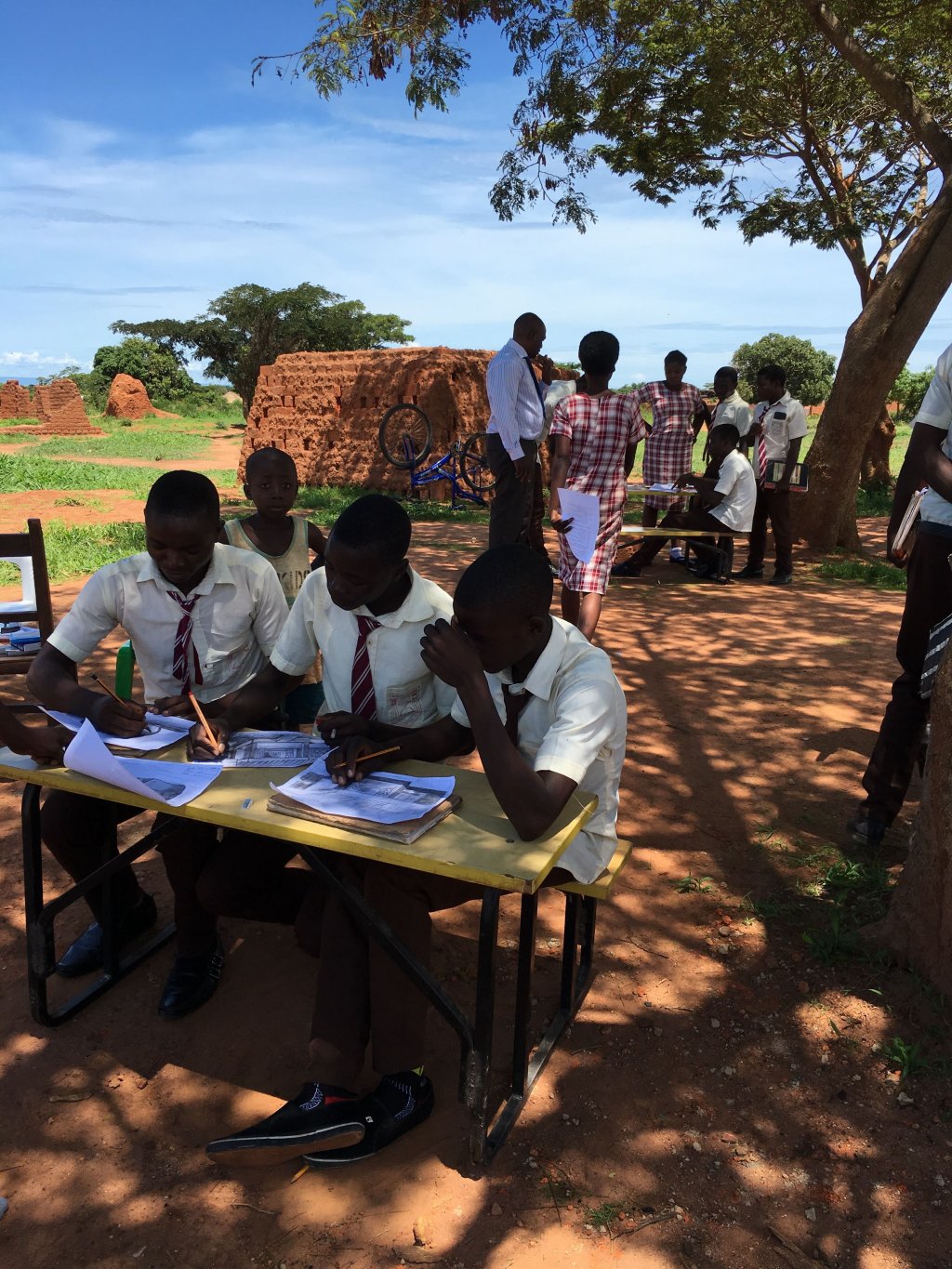
It was a hot afternoon and we were on the way with Jacob Chanda, in the car. The journey lasted a good hour. We were fascinated by the different cloud formations in the skies. It would soon rain again.
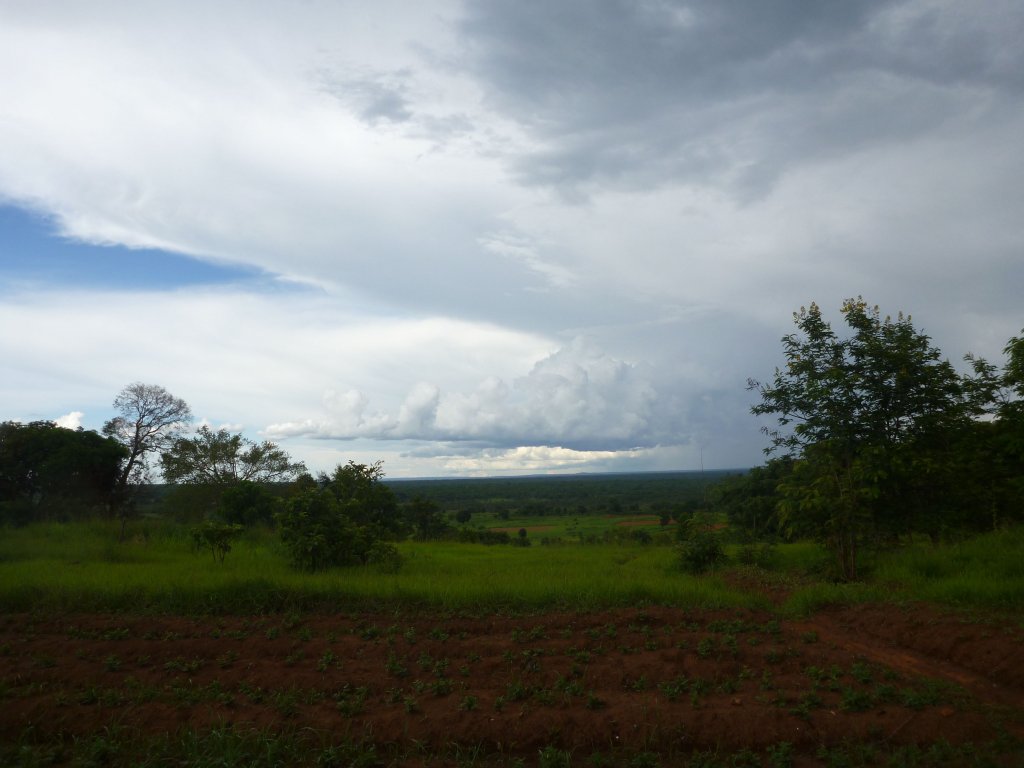
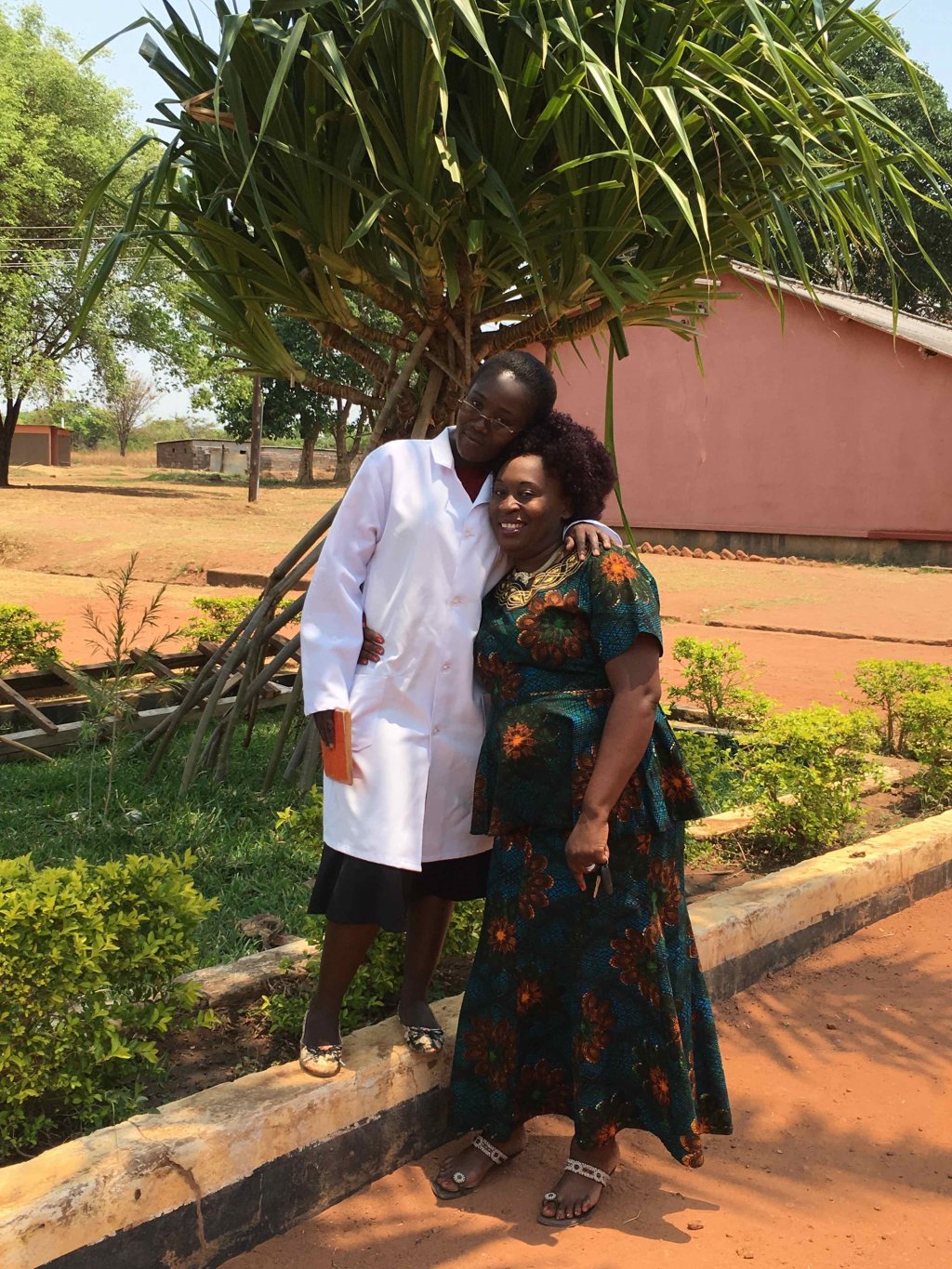
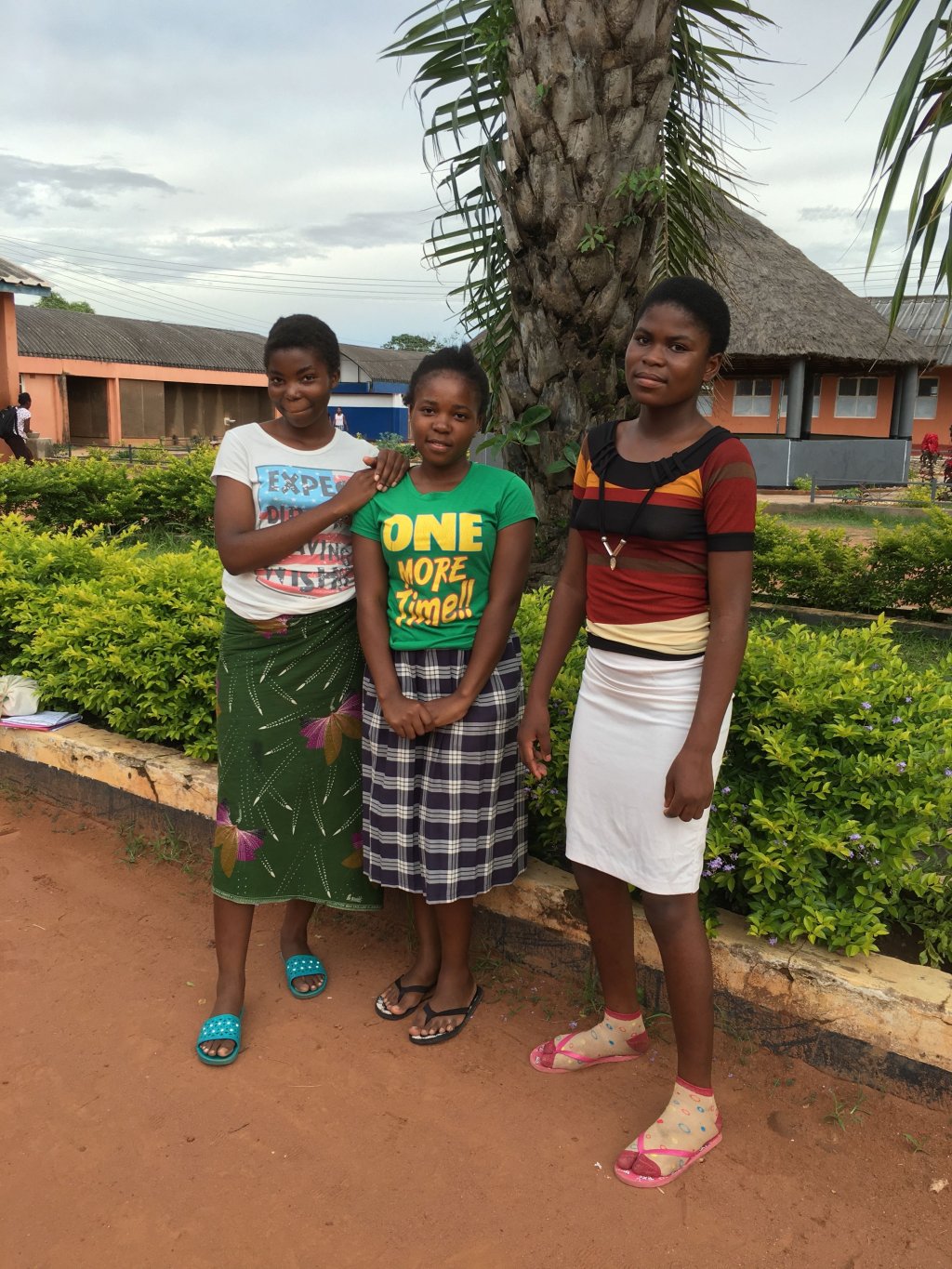
I was also able to meet Emmanuel Kalifungwa, Barbara Bwale, Ernest Chalwe and Felix Chanda C, all graduates of the St. Paul’s Nursing School.
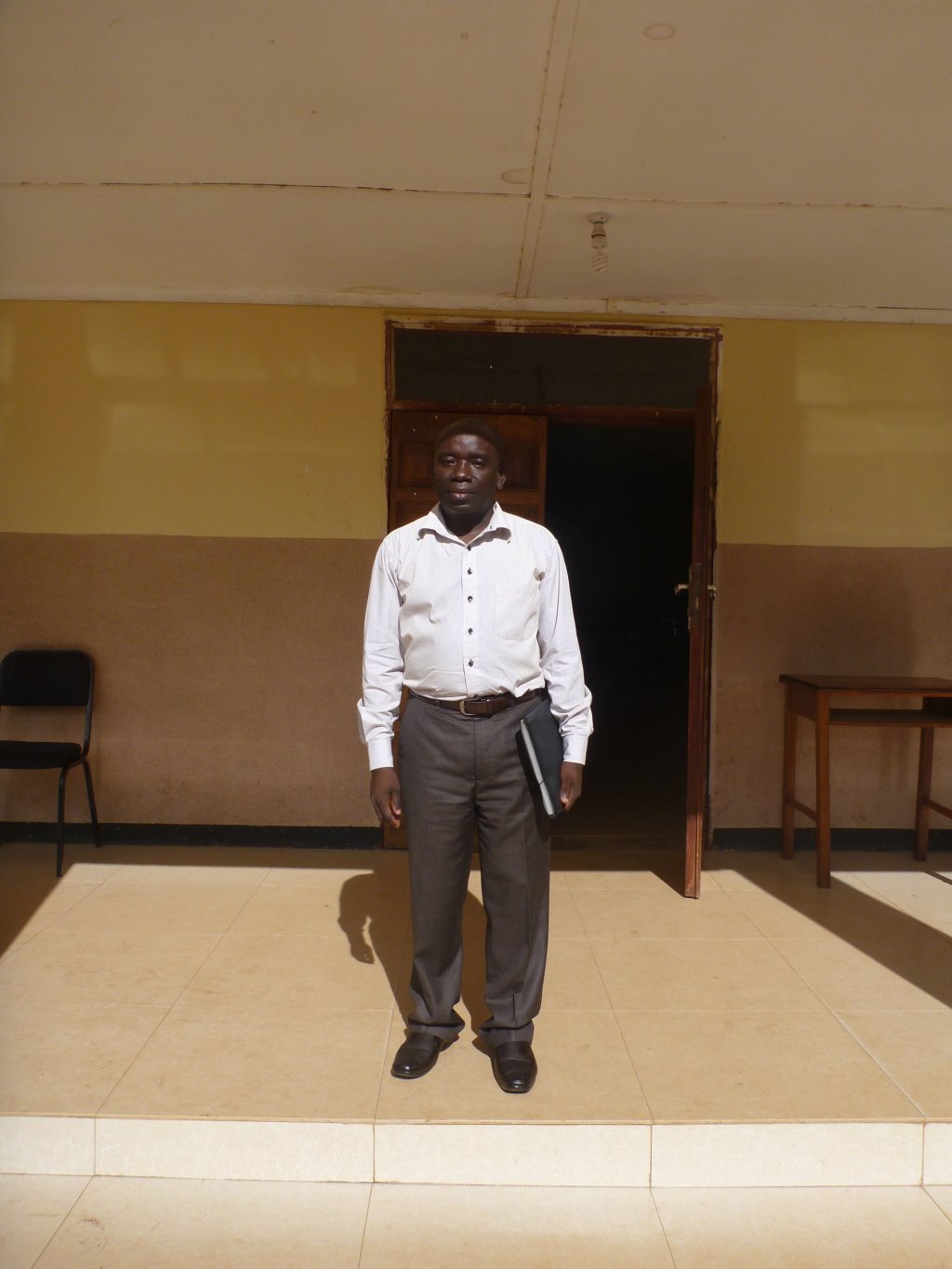
Emmanuel Chisala, Tutor and IT specialist at St. Pauls’ School of Nursing (November 2017)
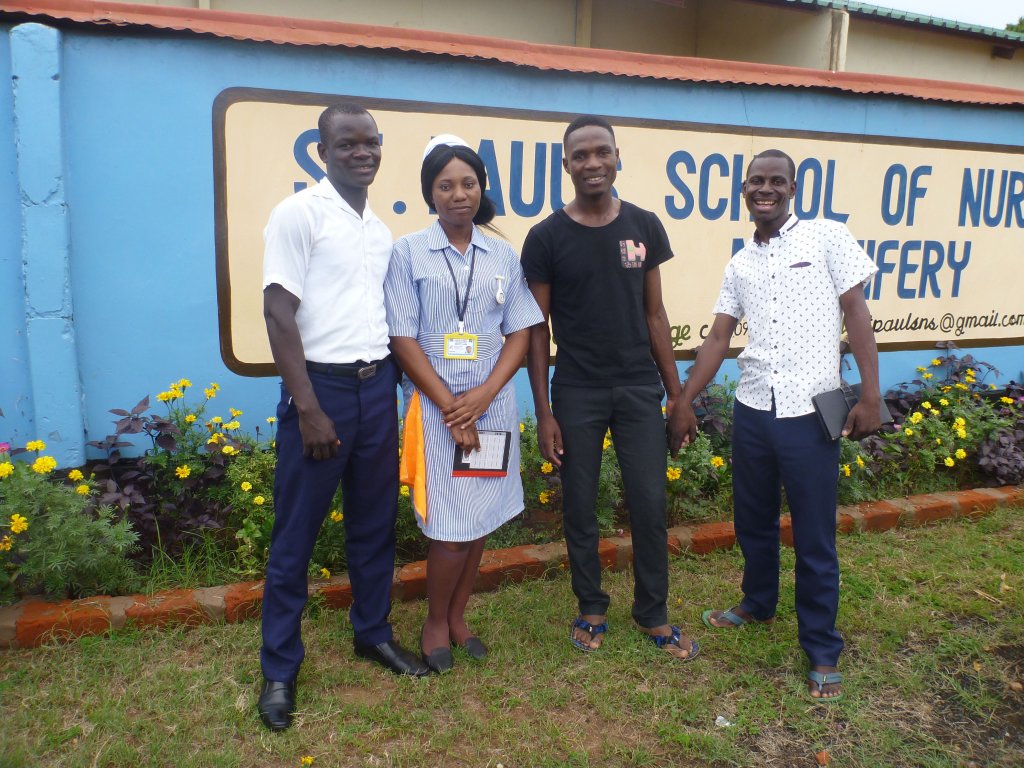
Emmanuel Kalifunga, Barbara Bwale, Ernest Chalwe und Felix Chanda C at St. Pauls’ School of Nursing (November 2017)

